

Should Engineers Get a PHD? 11 Truths!
Should engineers get a PhD? Depends on what you want to achieve in your career. There are ups and downs to pursuing a PhD in engineering.
To figure it out, start by asking yourself what kind of career you’re after. Your decision will be based on factors like:
- Your interests
- How much money you want to make
- The lifestyle you desire
- Your other career options
We’ll chat about these four pointers, and then dive headfirst into 11 extra tips to help you size up the pros and cons of pursuing a PhD in engineering.

Important Note: I’ll be generalizing each factor I discuss, so keep in mind that there are always exceptions. And don’t forget that some superstar engineers will fly high whether they have a PhD or not. Success can come either way!
What really interests you in engineering?
A PhD can give you a leg up when tackling groundbreaking technological challenges. Without one, you might find it tough to access such work. But if you’re into more typical engineering gigs in the industry, then a PhD won’t be worth the time and money.
Usually, people go for a PhD if they want to become a specialist or researcher, or if they have their sights set on an academic career. A PhD can provide flexibility between industry and academia, letting you explore fresh ideas and spearhead innovative projects.
Here’s my two cents on both academia and industry:
In academia
In this world, your work might not make an immediate real-world splash. It could take years or even decades for your research to be recognized and applied. So, if you’re looking to become an overnight sensation, you might want to think again.
But you know what? To a select few who are passionate about your field, your work will be a big deal. You’ll have the chance to share your unique ideas with like-minded folks and make a difference in your little corner of the world.
And never forget that every small step you take will ultimately contribute to the greater good of humanity.
In industry
Meanwhile, in the industry, your work can make an instant impact. You’ll tackle awesome projects that are directly tied to a company’s goals, making a real difference in people’s lives.
Take, for example, working on R&D for batteries. Batteries are essential for our future, and every tiny improvement can change our lives in a big way.
The downside? Your company might not give you the credit you deserve for your groundbreaking work. But don’t sweat it – there are loads of similar opportunities for PhD holders who are motivated and inventive.
All in all, whether you pick academia or industry, you’ll have plenty of chances to change the world. Just keep cranking out top-notch work, and everything else will fall into place.
How much money do you want to make?
First off, don’t pay for your PhD yourself. If you can’t get funding, it means the market doesn’t see the value in your research.
Even with funding, you might only make $20k to $40k a year, depending on your university. If you’d gone straight into the industry, you could be pocketing $150k or more each year. Then you could invest that salary in real estate, businesses, you name it.
So, if money’s your main concern, you’ll lag behind your peers who jumped straight into the industry. Because while you’re spending 3 to 5 years earning a PhD and living on ramen noodles, they’ll be making bank.
And if you’re thinking about academia after your PhD, buckle up for even more financial hurdles.
Let’s be real: a PhD is a massive investment of time and money. If dollar signs are all you see, don’t bother with a PhD.
Important Note: Engineers with PhDs who start multi-million dollar businesses are exceptions, just like college dropouts who start multi-billion dollar businesses.
PhD stipends from major U.S. universities
Check this shortlist of engineering department stipends from major universities, put together by PhD Stipends :
As you can tell, diving into a PhD in engineering might not make you rich overnight. But, hey, it does give you the chance to work on some mind-blowing research and help shape the world of tomorrow.
Important Note: Don’t forget to weigh in the cost of living when you’re checking out those PhD stipends. Higher stipends usually come with a heftier price tag on everyday life, like in the Bay Area where Stanford is nestled.
What type of lifestyle do you want?
Dreaming of a chill, easygoing life? Academia might not be your jam. You could grind away for years and never snag that elusive academic tenure. Even in the industry, you might land just an ordinary engineering gig, making your PhD feel like a waste.
The professional stress from this uncertain journey can seep into your personal life. Financial struggles might become your constant companion, impacting every corner of your life. But hey, with a PhD, you get the keys to the world’s coolest toys and can work in top-notch national labs and fancy universities.
If you’re down to embrace uncertainty into your golden years, a PhD could be worth the ride. You may trade short-term comfort for the shot at doing what sets your soul on fire in the long run.
Mind you, I use the term sacrifice lightly. If you’re head over heels for your research, nothing else will even matter.
Do you have other options in life?
If you’re still feeling the PhD vibe after all this, ask yourself:
- Do you have any other career options?
- Is there another gig that’s tugging at your heartstrings?
If you said yes to either, hold your horses! Give some serious thought to whether a PhD is really your destiny. I’ve got friends who ditched their PhD programs to start businesses, and now they’re swimming in millions!
On the flip side, I know folks who chased a PhD just to immigrate to the US for a better life. But listen, don’t just follow the crowd. Committing to a PhD is a massive deal and can change your life in a big way.
This is further highlighted by the low number of U.S. students going for a PhD in engineering each year. The data below, from ASEE , includes all engineering fields combined.
Important Note: The number of awarded engineering doctorate degrees is increasing. But the U.S. population is also increasing, and more foreign students are immigrating to the U.S. to pursue a PhD.
11 Pointers to consider in pursuing a PhD in engineering
Now, here are 11 pointers I’ve gathered from my pals and relatives who’ve gone down the PhD-in-engineering rabbit hole:
#1 Choose a research topic with real-world oomph
Picking the perfect research topic is the key to unlocking your PhD’s potential. Focus on fields that are shining bright, like:
- Artificial Intelligence (AI)
- Renewable energy
These areas tend to reel in more funding and have a higher demand in both academia and industry. After all, you still gotta pay the bills and keep a roof over your head.
#2 A PhD hones your thinking skills, not just your specialization
In the real world, you might not use all that fancy research know-how from your PhD. Instead, you’ll rely on your shiny new way of thinking to tackle problems.
So, a PhD isn’t just about becoming the go-to person in a super-niche field. It’s also about learning how to think and tackle the tough stuff.
And, hey, you can pick up these skills outside the hallowed halls of academia too.
#3 Don’t expect a PhD to put you on a pedestal
Sure, a PhD might make some folks go “ooh” and “aah,” but at the end of the day, it’s all about delivering the goods. Your skills and passion for the job are what really count, not the alphabet soup trailing your name.
I’m all about treating everyone equally, regardless of their academic fanfare.
Of course, a PhD can give you a credibility boost when making first impressions. But remember, it’s what you do next that really matters.
#4 A PhD can open doors, but it might close some too
A PhD can help you score high-level gigs at big-shot companies with in-house research and development. But beware – it might also slam some doors shut if you’re deemed overqualified for certain roles.
Choose your career path wisely and take time to think through your future pragmatically.
#5 Dive into a PhD in a subject that ignites your passion
Being passionate about your subject is the secret sauce to staying motivated during your PhD journey. Surround yourself with amazing people who share your interests, or you’ll struggle through the tough times – and trust me, there’ll be plenty.
#6 Don’t chase a PhD for the wrong reasons
Don’t go after a PhD just because “it’s what smart people do” or because you want to add some extra letters to your name.
Let’s get real here: a PhD doesn’t magically transform you into a genius. Heck, some of the brightest minds out there never even set foot in a college classroom!
If you were a regular Joe or Jane before diving into a PhD program, chances are you’ll still be one when you’re done. But hey, you don’t need to be a mega-brainiac to tackle a PhD. If you can snag a spot in a program, you’ve definitely got what it takes to see it through.
#7 Fear not the PhD pursuit
Some folks are scared stiff of the grueling trek to PhD-land. It’s like climbing a never-ending mountain, right?
Well, anything worth chasing is gonna be tough. If it were a piece of cake, everybody and their dog would be doing it!
#8 A PhD isn’t for everyone
To nail that PhD, you need a killer work ethic and a fierce dedication to your field. That’s what’ll help you conquer those hurdles and push through the lonely stretches.
Let’s face it: the PhD life isn’t everyone’s cup of tea. Just look at the small number of doctorates awarded each year in the U.S., as reported by ASEE. The data below covers all engineering fields combined:
And if you’re bold enough to take on a PhD, you’re probably an ambitious go-getter. So you’ll no doubt find some other epic challenge to sink your teeth into.
#9 Pick your program and advisor like a pro
The right program and advisor can make or break your PhD ride.
Seriously, you’ll be bending over backward for your advisor for years. They’ve got the power to make your life a living nightmare. Keep your eyes peeled for these red flags:
A bad advisor:
- Is a grade-A jerk
- Makes everything about them
- Squeezes you for free labor and grinds you down
- Fills you with guilt and doubt
A good advisor:
- Is super nice and supportive
- Turns you into a top-notch researcher
- Dishes out awesome life advice
- Hooks you up with conferences and fellowships
- Lets you visit other labs
So do your homework and pick your program and advisor with care.
#10 Weigh the impact on your loved ones
I’ve known people who juggled family life and a PhD. Sure, it was a bumpy road, but they made it work.
Keep in mind that a PhD can take ages, and your biological clock won’t wait around for you to finish.
#11 Industry jobs for PhD grads
Dreaming of a PhD to score an industry job? From what I’ve seen, here are a couple of paths for PhD graduates:
- Work in well-funded government labs, doing the research thing.
- Join big-league companies like Google, Apple, or IBM that can afford to splash cash on research.
If that doesn’t float your boat, a Master’s degree might be all you need for other engineering gigs in the industry.
Important Note: During recessions, R&D departments usually hold steady. R&D is a long-haul investment for a company, after all.
If an R&D project kicks off during a slump, it’ll wrap up just as the economy bounces back. That way, the company comes out stronger on the other side.
“Should engineers get a PhD” wrap up
Deciding to pursue a PhD is a deeply personal choice that deserves some serious soul-searching.
Don’t let peer pressure sway you. Take a good, hard look at the pros and cons, and make the call that’s right for you.
Now, I’ve met engineers who’d never trade their PhD experience for the world. But others reckon it was the worst decision they ever made.
At the end of the day, a PhD is all about the journey, not just the fancy certificate and those three little letters you get to tack onto your name.
Do you think a PhD in engineering is worthwhile? Will it be even more valuable down the road?
SUBSCRIBE TO ENGINEER CALCS NEWSLETTER
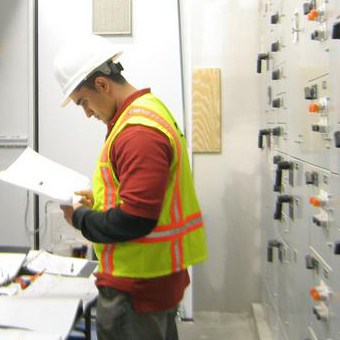
Author Bio: Koosha started Engineer Calcs in 2019 to help people better understand the engineering and construction industry, and to discuss various science and engineering-related topics to make people think. He has been working in the engineering and tech industry in California for well over 15 years now and is a licensed professional electrical engineer, and also has various entrepreneurial pursuits.
Koosha has an extensive background in the design and specification of electrical systems with areas of expertise including power generation, transmission, distribution, instrumentation and controls, and water distribution and pumping as well as alternative energy (wind, solar, geothermal, and storage).
Koosha is most interested in engineering innovations, the cosmos, sports, fitness, and our history and future.
6 thoughts on “Should Engineers Get a PHD? 11 Truths!”
The most insightful comparison I’ve found on this topic so far. Thank you.
Glad you found the article helpful 🙂
Thanks for that nicely summed up article – not too long and covers the important points on everybody’s mind! 🙂
Glad you enjoyed the read 🙂
Thank you, I have just been searching for info about this subject for ages and yours is the best I have found out till now. However, what in regards to the conclusion? Are you positive about the source?
I tried to capture all angles of the experience, so do your best to apply the lessons to your personality and reasons for pursuing the degree.
Leave a Comment Cancel reply
Save my name, email, and website in this browser for the next time I comment.
- Industry Partners
- Aerospace & Automotive
- AI, Machine Learning, IoT & Data Science
- Biotechnology & Healthcare
- Building, Design & Construction
- Business, Management & Consulting
- Cybersecurity
- Electrical & Electronics
- Energy & Sustainability
- Entrepreneurship & Startup
- Government & Non-Profit
- Manufacturing & Materials
- Research & Academia
- Biomedical Engineering
- Computer Science & Engineering
- Electrical & Systems Engineering
- Energy, Environmental & Chemical Engineering
- Mechanical Engineering & Materials Science
- Greater St. Louis Region
- Women & Engineering
- Multicultural
- Featured Jobs
Should You Get Your PhD in Engineering?
- Share This: Share Should You Get Your PhD in Engineering? on Facebook Share Should You Get Your PhD in Engineering? on LinkedIn Share Should You Get Your PhD in Engineering? on X
Is it worth it to continue the academic track towards an engineering PhD, or are you be better off going into the industry, paying back those student loans? The answer depends on what you want from your engineering career.
Do You Enjoy Research?
The greatest advantage of the PhD is that it gives you experience in carrying out detailed research. Your Master’s and Bachelor’s degrees are focused on learning things that are already known, but the PhD teaches you to find out new things, to carry out experiments, to report data, and learn from your mistakes.
Ideally, you become a subject matter expert in your chosen focus. That puts you in a great position for jobs that require that specific expertise, or where research skills are highly valued.
Preet Anand, CEO of technology company BlueLight , says that you need to think about what role you want. “A PhD is incredibly important for anyone involved with scientific innovation and research. However, if your aspirations are to be involved with implementation and quickly moving into the business side, a PhD is probably not effective from a time-ROI perspective. It’s especially not helpful if you’re working in software, where the speed of innovation in industry is quicker than the speed of academia.”
Forensic engineer Robert McElroy specializes in technical failure analysis related to automobiles, heavy trucks, and all types of industrial vehicles, and is an internationally recognized expert on the causes of industrial and transportation accidents. He stresses that his PhD has both commercial and technical benefits. “As a serial entrepreneur and forensic engineer, without the PhD, I could never have accomplished what I have been fortunate enough to achieve.”
An Engineering PhD Opens Doors…
Karen Thole, Department Head of Mechanical and Nuclear Engineering at Pennsylvania State University and member of the American Society of Mechanical Engineers , explains that the usefulness of PhDs in industry quite depends upon the industry itself. “Many high tech industries continue to develop “tools” to help their engineers determine better designs. The development of such tools generally requires a graduate level understanding. And, a company’s tools are what set apart the competition. For example, there are several companies that make gas turbine engines with the basic architecture being the same. What sets companies apart, however, are those that do their own tool development such as predictive codes, design codes, standard work practices, etc. As tools improve, it helps to advance technology and develop better engines. To improve the tools, however, it requires a high level of understanding of the physics, which is where PhDs come in. The more technologically advanced the company, the more it takes some sort of research center, which generally employs PhDs.”
“I have yet to find a jobless, homeless PhD in engineering.”
Naturally, this means that some industries have far more demand for PhDs than others. “The aerospace industries as well as the high tech electronics industries both look for PhDs,” says Thole. “They’re generally the ones which require ME and EE disciplines.”
David Gantshar, CEO of engineering recruiters Shepherd Search Group Inc. notes that the value of a PhD often depends on the character of the senior management. Companies founded or led by PhDs tend to have more respect for those who have been through the same academic training. “A PhD is highly valued in some circumstances and not necessary at other times,” he says. “For a vice president of engineering or another senior executive position, it can be a big plus, especially if the company president himself has a PhD. The PhD degree reflects intense and successful research and would be valued in an R&D environment. If the president of the organization has one, he/she will value those individuals that are “on par” academically and offer credentials similar to those around the table. However for a senior engineering or manager’s position, it is rarely required.”
… Unless It Closes Them
However, one problem faced by many PhDs is that they’re often regarded as “too academic,” and therefore not suited to the pace and pressures of commercial engineering.

Credit: NASA
Whether or not that’s true, it’s certainly a perception you have to battle with, as Gantshar notes. “It really depends on the organization. Some companies might see a Ph.D. as too research oriented and would identify the engineer as insufficiently hands-on. We have seen many instances where a PhD has actually worked against a candidate in these circumstances and the individual with less academic credentials is selected based upon these perceptions.”
What About Non-STEM PhDs?
If you’re thinking of going into the management role, then it may be worth considering a PhD which proves your business credentials. Combined with your engineering experience, it can give you a major advantage over other managers.
Sonja Fisher recently completed her PhD in business. “It has been very helpful,” she says, with evident pride. “I am getting opportunities left and right. I seem to be more in demand since getting my PhD.”
Should You Get Your PhD?
If you’re looking for a research role, a job requiring very specific expertise or a position in a company that’s known for innovation or R&D, then a PhD can pay great dividends. According to the latest Engineering Income and Salary Survey , on average, you’ll earn about 35% more than an engineer with a Bachelor’s degree – typically about $30,000 a year. That’s a huge payoff for those few years of research.
Equally importantly, a PhD will give you a level of job security that a lesser degree won’t give you. “I have yet to find a jobless, homeless PhD in engineering. That’s my simple answer,” grins Thole. Not only that, but it opens up new opportunities. “The PhD really allows you to tailor your own career a bit more. Generally companies want their PhDs to seek out new ideas and think bigger about the field. So, it presents more opportunities to do what you want.”
Source: Engineerjobs.com

PhD Admissions
Earn your doctorate at duke.
Completing a PhD program in engineering is hard. Really hard. But after years of preparation, frustration and celebration, a Duke doctorate stands out from the crowd.
Between field-defining faculty and a web of industrial, entrepreneurial and public-policy connections, with a Duke Engineering PhD, you can just about go anywhere and do just about anything your heart desires.
And with Duke’s comprehensive financial and professional support, you won’t take that journey alone.

Duke: The Path to a High-Impact Career
Wherever your path leads you, a Duke PhD will ensure you’ll arrive prepared to make a difference.
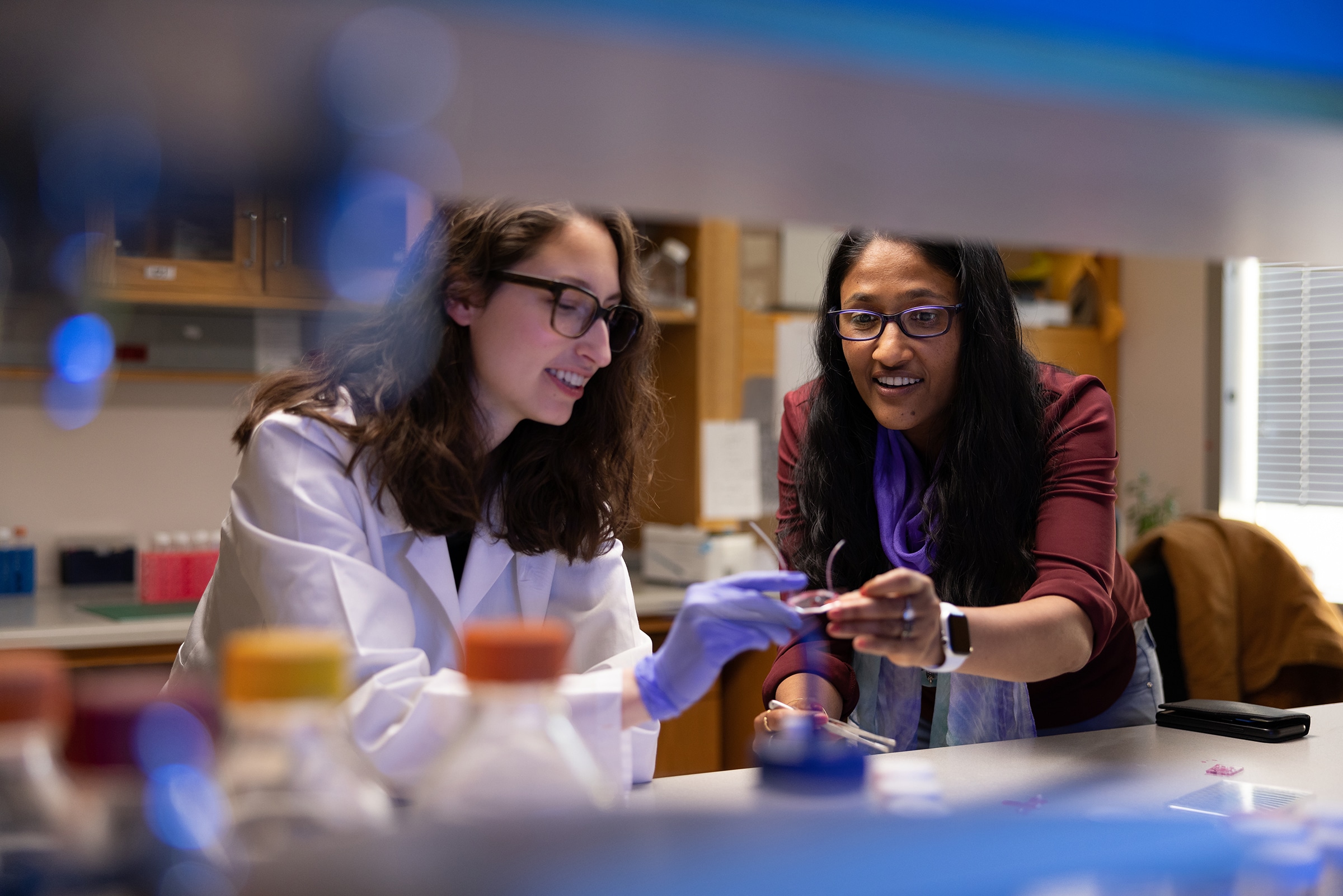
Biomedical Engineering
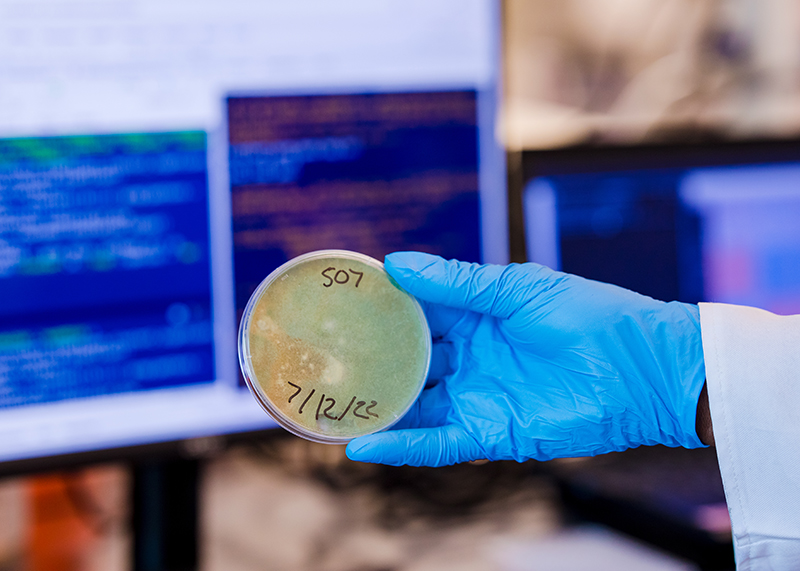
Civil & Environmental Engineering

Electrical & Computer Engineering

Mechanical Engineering & Materials Science
Guaranteed funding.
Duke provides significant financial support. And that’s just the beginning. There’s mentorship and career exploration support, too.
Generous Stipend
Guaranteed pay, 12 months a year, for the first five years
Paid Tuition
Covered by Duke during the first five years of study
For the first five years, Duke pays all mandatory fees
Insurance Coverage
For six years, Duke pays your health and dental premiums
Applying to Duke
Contact us at [email protected]
Join Our Mailing List
Receive updates, insights and invitations from our Admissions Team
Review Financial Support Package
5 years of stipend—plus six years of health and dental coverage
Find Your Deadline
See the application calendar for all Duke PhD programs
Start Your Application
Using Duke’s secure online platform
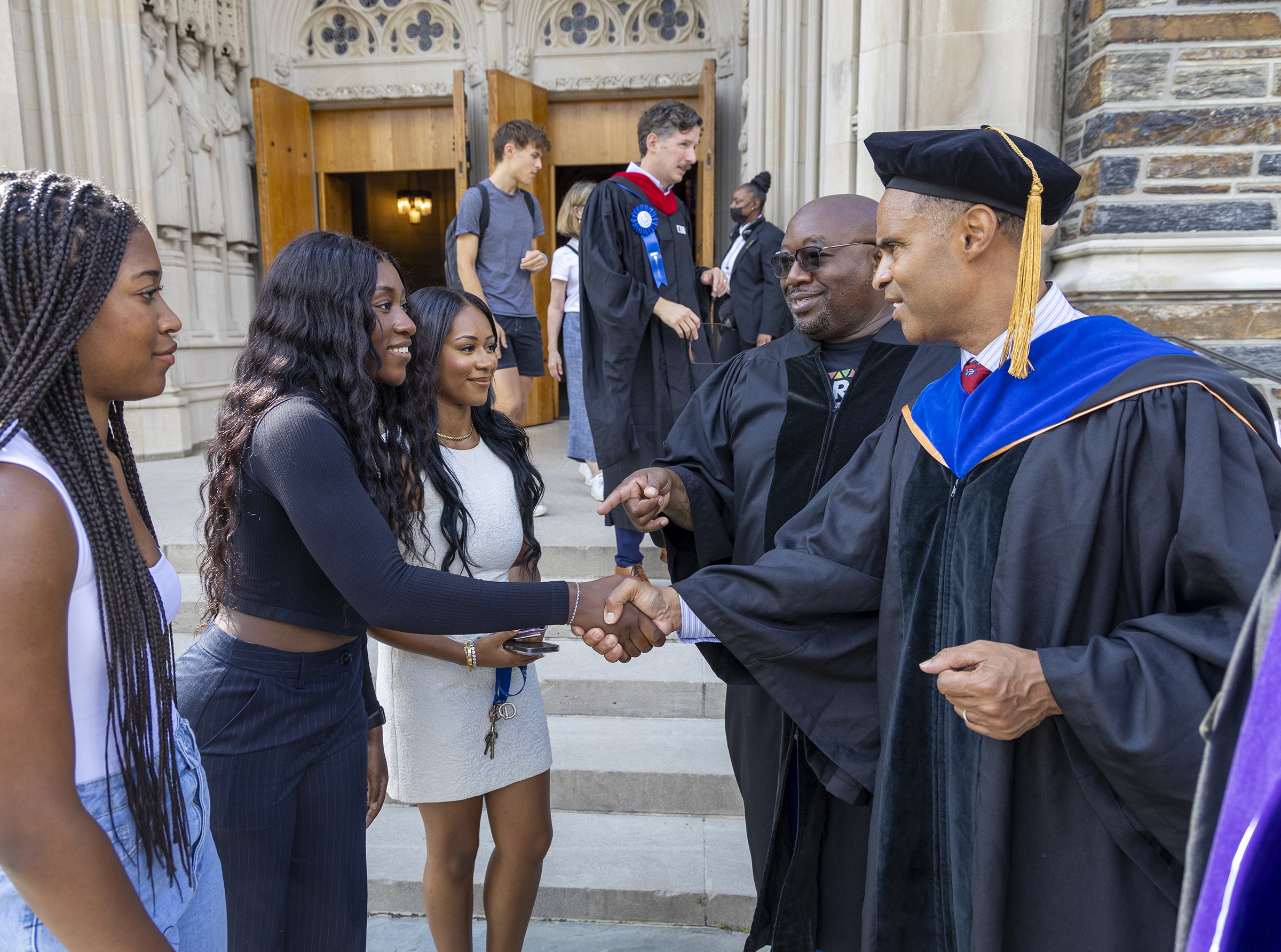
Diversity Makes Better Engineers
An optimist sees the glass as half full. A pessimist? Half empty. An engineer sees a glass that’s twice as big as it needs to be. Point is, engineers see things differently. Duke engineers see things very differently. Why use glass at all? Can we create a more efficient material? Ooh, should we include a water quality sensor? Here, we value different backgrounds and ways of thinking—because new approaches generate new solutions.
PhD students
Phd students per tenure-track faculty member, of our phd students received an nsf or other prestigious fellowship, in new research awards won in fy22, best graduate biomedical engineering program.
U.S. News & World Report
Lower cost of living in Durham vs. Boston
Facilities: welcome to wilkinson.
The newest of our buildings is 81,000 square feet of transformational design. Inside Wilkinson are research neighborhoods focused on advances in health, computing and the environment.
Dedicated workspaces for doctoral students feature natural light and campus views.
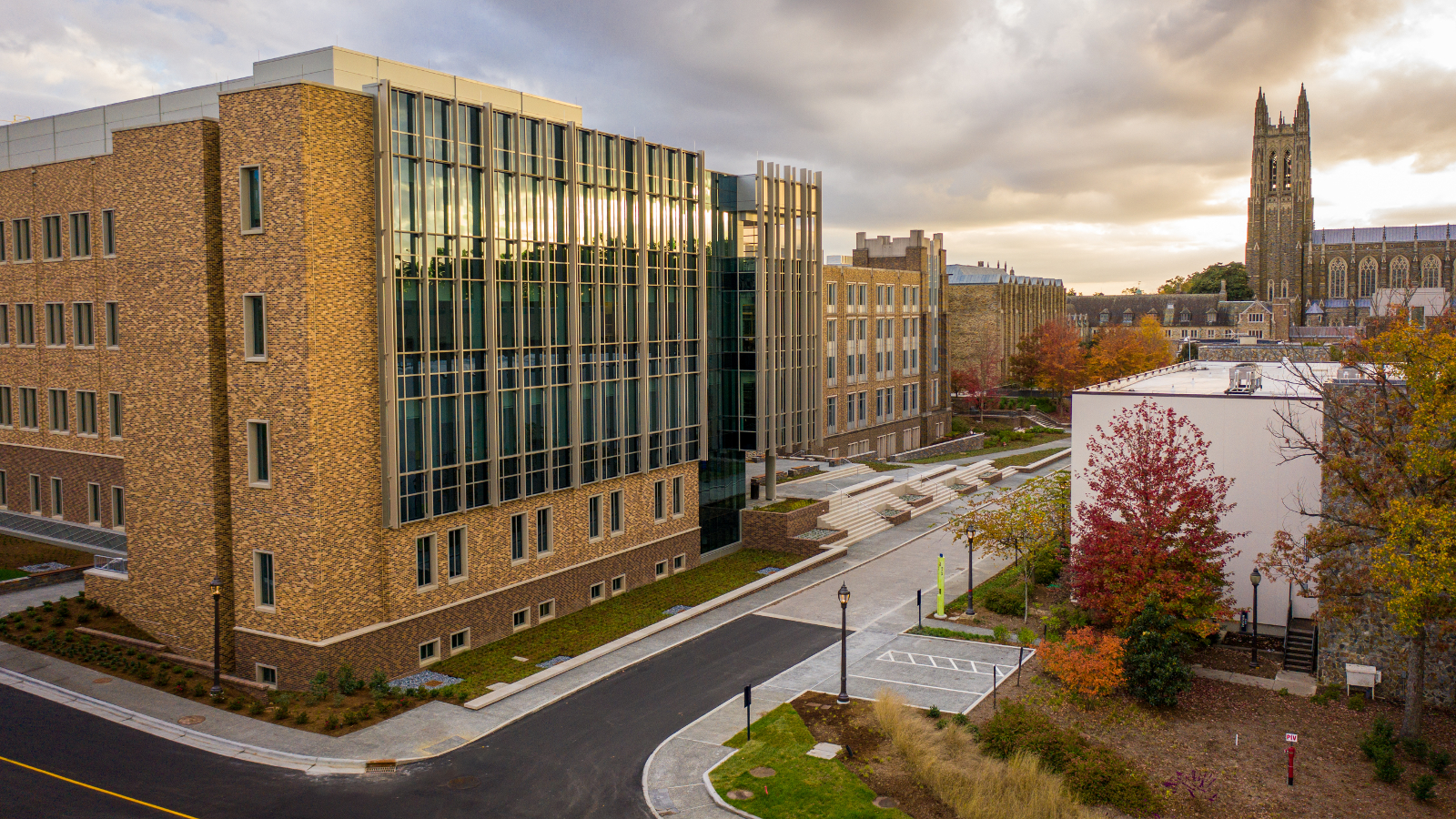
Durham and Beyond
Location. location. location..
At the north vertex of North Carolina’s famed Research Triangle, the city of Durham is essential to the Duke Engineering experience. Among our neighbors are hundreds of startups and standard bearers both private and public, a growing collection of James Beard Award-winning chefs, and a quickly growing community and skyline. River rafting, trail hiking, mountain climbing and sandy beaches are all just a couple hours’ drive away.
It doesn’t take an advanced degree to see why Durham is the #3 best place to live in America according to U.S. News and World Report, but come get one here anyway.

Interested in joining our community?
Start a conversation with Duke.
Is getting a PhD in science or engineering right for me?
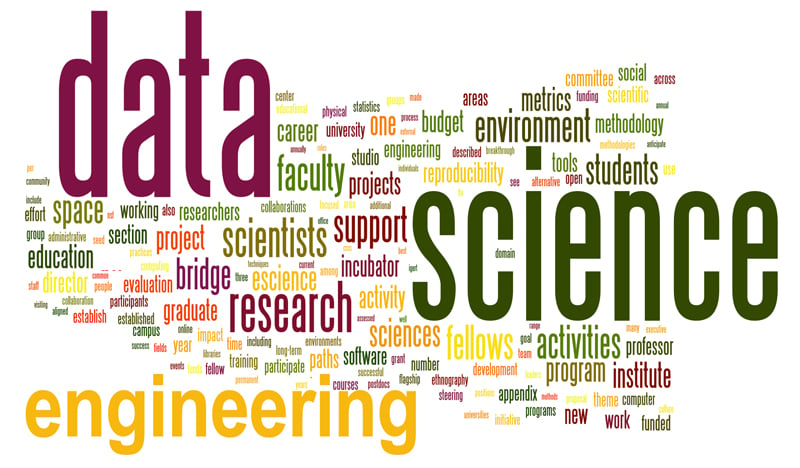
If you are excited about a PhD because you were a good undergrad student and aren’t sure what you want to do next, think carefully about whether a PhD is right for you. While you (may) find the jobs you are qualified for after a PhD more satisfying, and they may be better compensated, remember that you will first spend 4-5 years (or more, if you choose to pursue a postdoc!) making a stipend that covers the cost of living, but not much else. For context, PhD candidates’ salaries are typically in the high $20K to low $30K range per year, depending on if you’re in science (lower) or engineering (higher) and the cost of living where your school is located.
Now, if you’re still thinking about it, here are a few reasons pursuing a PhD might be a great fit for you:
You enjoy working independently on problems that nobody has solved before
In graduate school, you are, by definition, working on problems that nobody has solved before. That means that you’re responsible for both thinking about your work at a high level (how is this work interesting and important? What is the motivation for what I’m doing?) as well as proposing and developing solutions to technical challenges. NOBODY will give you a detailed description of exactly what you should be developing: YOU are in charge of both setting the goalposts appropriately AND reaching those goals. You will get feedback, advice, resources, and mentorship from many people along the way…. But, at the end of the day, the thesis is YOUR work. This is a tremendous change from the problem sets and exams of an undergraduate degree!
You want to eventually work at a company doing research and development at a high level
In many companies, only so much technical progression along a research and development path is available to people without a PhD. I have had several friends and colleagues who returned to graduate school after several years of working because they found they weren’t happy with the work they were doing, and there were no opportunities for the career advancement they wanted without a PhD.
You hope to pursue a career as a researcher employed at a government laboratory (NIH, one of the national labs or defense labs)
Many of these researcher positions are available only to people with PhDs, and the kinds of projects they work on range from basic science to applied research and engineering.
You want to be a professor
Some people think the only career option open to PhD graduates is to become a professor, which is not true! However, a PhD IS needed to become a professor. Some people choose to work at an undergraduate-only institution, where they can be more focused on teaching students, while others go to big research universities where they are expected to write grants to bring in funding for research, conduct research alongside graduate students and postdocs, as well as teach undergraduate and graduate-level courses.
You want to work as a consultant or technical consultant
Many firms such as McKinsey & Co. and the Boston Consulting Group (business consulting) and Exponent (technical consulting) recruit disproportionately among people with science and engineering PhDs.
You hope to pursue a scientific writing/communications-based career
Careers in technical writing for companies, as editors for scientific journals, and working with patent lawyers and intellectual property, all require a level of scientific literacy that is acquired during a PhD.
You are excited about producing new technology and launching a startup
Some schools have programs, competitions, and incubators to help PhD students interested in entrepreneurship turn their ideas and technologies into a company. Programs such as dual PhD/MBA programs even exist.
If one or more of these paths sounds exciting to you, applying to, and pursuing, a PhD in science and engineering might be a good choice. Depending on what career path you are interested in, you will want to find a school, program, and professor that matches your interests. For example, if you’re interested in eventually starting a company, joining a research group that has done this before at a school with entrepreneurship programs is a good idea. Looking up prior graduates from groups that you join and seeing what they end up doing is a good way to see if the experience you would have in that group will prepare you for your long-term goals.
Related Content
- Graduate Programs
- Prospective Students
- Current Students
- Faculty & Staff
- Degree Programs >
PHD, Engineering
The PhD in Engineering provides maximum flexibility for students to address 21st century challenges through their studies and research. Emphasis Areas enable students to focus in either a specific disciplinary specialty or interdisciplinary area.
Degree Type: Doctoral
Degree Program Code: PHD_ENGR
Degree Program Summary:
To define, develop, adapt, and disseminate knowledge and technologies for engineering and management of interdisciplinary engineering systems.
The Ph.D. in Engineering encourages exploration and definition of new engineering approaches and new engineering fields with an open structure for connecting and integrating for solving problems. Graduates will be prepared for successful careers as teachers, researchers, and inventive engineers in a world of unpredictable future changes. They will learn about university-industry-government interactions by preparing research proposals, papers, and disclosures of intellectual property for competitive peer evaluation. They will also have opportunities to master essential skills for introducing products in start-up and large company environments. Typically, twenty-four hours (and six hours of dissertation research) are required in addition to the Masters coursework. The plan must contain at least 16 hours of 8000 level courses. Contact the graduate coordinator for additional details.
Locations Offered:
Athens (Main Campus)
College / School:
College of Engineering
597 D. W. Brooks Drive Athens, GA 30602
706-542-1653
Graduate Coordinator(s):
Search for another degree
Find your graduate program.
Offering 200+ degrees, certificates and programs of study, we’ll help you get started on your graduate journey.
or
Search by keyword, program of study, department or area of interest
Interested in earning both a bachelor’s & master’s degree in five years or less?
Learn more about Double Dawgs .
Unlocking potential. Building futures.
Apply Today
The Graduate School Brooks Hall 310 Herty Drive Athens, GA 30602 706.542.1739
- Administration
- Graduate Bulletin
- Strategic Plan
- Virtual Tour
- Request Information
- Requirements
- Application Fee
- Check Status
- UGA Main Campus
- UGA Gwinnett
- UGA Griffin
- UGA Atlanta-Buckhead

Find the Best Engineering Schools
A doctorate in engineering gives students a chance to shift their focus, further specialize or learn to manage others in the field. These degrees can be research-based or professional. The latter mostly takes a managerial and technical approach.
For full rankings, GRE scores and student debt data, sign up for the U.S. News Engineering School Compass.
- 2023-2024 Best Engineering Schools
- # 1 Massachusetts Institute of Technology Cambridge, MA
- # 2 Stanford University Stanford, CA
- # 3 University of California, Berkeley Berkeley, CA

Search Engineering Schools
Engineering Programs, Specialties and Additional Rankings
Discover the different engineering specialties available to doctoral students. From environmental to nuclear to computer engineering, there are many directions you can take. These specialties can dictate career paths since there may not be a lot of crossover between certains areas in engineering.
- Aerospace / Aeronautical / Astronautical Engineering
- Biological / Agricultural Engineering
- Biomedical Engineering / Bioengineering
- Chemical Engineering
- Civil Engineering
- Computer Engineering
- Electrical / Electronic / Communications Engineering
- Environmental / Environmental Health Engineering
- Industrial / Manufacturing / Systems Engineering
- Materials Engineering
- Mechanical Engineering
- Nuclear Engineering
- Petroleum Engineering
Best Online Programs
Explore engineering schools that offer the convenience of online programs.
- Online Graduate Engineering
Additional Engineering School Resources
See what type of STEM jobs you can get with an engineering master’s degree.
- A-to-Z List of Engineering Schools
- Best STEM Jobs
Considering an Engineering Degree?
Sign up for a free U.S. News account to receive expert advice on topics like types of engineering degrees, what is a good GRE score, and paying for graduate school.
Graduate School Advice
Applying to Grad School

Paying for Grad School

About the GRE

Studying at a U.S. Grad School

More About Graduate Schools
What to ask law students and alumni.
Speaking with current students and recent graduates of a law school can fill out your picture of what it's like to go there.
Gabriel Kuris April 22, 2024

Find a Strong Human Rights Law Program
Target law schools with human rights law clinics and journals, as well as a broad selection of relevant courses.
Anayat Durrani April 18, 2024

Environmental Health in Medical School
Stay informed, conduct research and get involved in activities and organizations prior to medical school.
Zach Grimmett April 16, 2024

How to Choose a Law Career Path
Shed your assumptions about what lawyers do to explore day-to-day work within different legal fields and law careers.
Gabriel Kuris April 15, 2024

Questions Women MBA Hopefuls Should Ask
Ask about the campus community, classroom culture and academic leadership as they relate to women.
Haley Bartel April 12, 2024

Law Schools With the Highest LSATs
At each of these schools, the median LSAT score among incoming students was 170 or higher, U.S. News data shows.
Ilana Kowarski and Cole Claybourn April 11, 2024


MBA Programs That Lead to Good Jobs
The average salary and bonus for 2023 MBA graduates was highest at Stanford University, per U.S. News data.
Ilana Kowarski and Cole Claybourn April 10, 2024

B-Schools With Racial Diversity
Underrepresented racial minorities make up an average of 54% of the student populations at these B-schools.
Sarah Wood April 10, 2024

Law Schools That Are Hardest to Get Into
The average acceptance rate at these schools was about 30 percentage points below the national average.
Sarah Wood April 9, 2024

Ask Law School Admissions Officers This
Good questions to ask admissions officers are clear, open-ended and school-specific.
Gabriel Kuris April 9, 2024

Undergraduate
Entrepreneurship.
- Thayer Express
- Undergraduate Admissions
- Graduate Admissions
Undergraduate Engineering at Dartmouth
Bachelor's degrees, undergraduate experience.
- Engineering Design
- Financial Aid & Funding
- Life After Dartmouth
- Project Spaces & Labs
- Research & Entrepreneurship
- Student Life & Housing
- Study Abroad
Quick Links
- Academic Calendar
- Career Services
- Course Descriptions
- Course Schedules
- Majors & Modified Majors
- Programs & Courses Guide
Program Areas
Graduate engineering at dartmouth, master's degrees, doctoral degrees, graduate experience.
- Collaborative Programs
- Degree Outcomes
- Help & Support
- Online Education
- Scholarships, Fellowships, & Grants
- Admissions Events
- Student Handbook
Engineering Research at Dartmouth
Research by program area.
- Active Projects
- Laboratories
- Research News
- Undergraduate Research
Engineering Entrepreneurship at Dartmouth
Startups listed by, patents listed by, links & resources.
- Dartmouth NSF I-Corps Program
- Dartmouth Tech Transfer
- Entrepreneurship News
- Magnuson Center for Entrepreneurship
- Office of Entrepreneurship & Technology Transfer
PhD Innovation Program
- Tuck School of Business
Dartmouth Engineering Community
Community info, about dartmouth engineering.

Home | Graduate Admissions | PhD Admissions
PhD Programs Admissions
Ready to apply to Dartmouth's engineering PhD , the PhD-Innovation (PhD-I) Program , the PhD in Medical Physics , or the PhD+MD ? To help students prepare a strong application, this page provides important information about the admissions process, including deadlines, eligibility requirements, and application and financial aid instructions.
PhD students typically enter with full support from either a Graduate Research Assistantship (GRA) or an external fellowship. Explore general PhD funding and expenses to consider for all PhD programs and learn about additional fellowship and grant opportunities .
Start Your Application
On This Page
Phd application process, phd innovation (phd-i) program application process, phd in medical physics application process, md-phd application process, application deadlines.
December 15
priority deadline for Fall term admission; applications are accepted on a rolling basis after December 15
At least two terms prior to admission
deadline for Winter, Spring, or Summer term admission
Required Application Materials
The following instructions are a guide for completing the application for the PhD program at Thayer School of Engineering at Dartmouth (Dartmouth Engineering).
PhD+PhD-I : New students interested in the PhD Innovation (PhD-I) Program can apply to both the PhD and PhD-I within the same application. Follow the PhD process outlined below , and submit the additional required materials for the PhD-I.
Please read the following instructions carefully. Only complete applications will be considered for admission.
Online Application
Applicants must complete the application for admission online. It is not necessary to send us a hard copy. Online applications open August 1 of each year.
Updating Your Materials
Your test scores and mailing address can be updated at any time through your application status page. After submission, other components (resume, statement of purpose, essays, etc.) cannot be updated. Please be sure you have entered the most accurate information at the time of submission. Due to the volume of applications received, we cannot update these materials after submission.
Acknowledgement
After submission, you will receive an email acknowledgement through the application system.
Application Status
To see the status of your application, visit your online application status page. Please note that it may take a few days for application materials to be processed.
Application materials and supporting documents become the property of the Admissions Committee and are not returnable.
General Policies
False Statements/Materials: If a candidate for admission to Dartmouth makes a false statement or submits falsified material in connection with his or her application, and the misrepresentation is discovered after the candidate has been admitted, the offer of admission ordinarily will be withdrawn. If the misrepresentation is discovered after a student arrives on campus or at any time during their enrollment, the student will be subject to loss of credits earned and disciplinary action that could include separation from the College. If the discovery occurs after a degree has been awarded, the degree normally will be rescinded.
Equal Opportunity: Dartmouth Engineering actively supports equal opportunity for all persons regardless of race or ethnic background. No student will be denied admission or be otherwise discriminated against because of sex, handicap, religion, sexual orientation, race, color, or national origin.
Security and Fire Safety Report: Dartmouth prepares an annual Security and Fire Safety Report which is available to all current and prospective employees and students. The report includes statistics of reported crimes that have occurred on campus, in certain off-campus buildings, or on property owned or controlled by Dartmouth, and on public property within, or immediately adjacent to and accessible from, the campus as well as reported fires occurring in residential facilities. The report also includes institutional policies concerning campus security, such as policies concerning sexual assault, fire safety, and other matters. You may obtain a copy of this report by contacting the Director of Safety and Security and the College Proctor at +1 (603) 646-4000.
Application Fee
A non-refundable application fee of $50 is required of all applicants, except for Dartmouth College or Dartmouth Engineering students and alumni. The fee must be paid by credit card. Applications will not be processed until this fee is received.
Letters of Recommendation
Three (3) letters of recommendation must be completed and submitted online directly by your recommenders . Please have your recommenders complete the evaluation form that will be emailed to them and submit a signed letter on their official institutional letterhead. If your recommender’s company or institution has a policy against letterhead they must provide a copy of this policy with the recommendation letter.
Letters of recommendation should ideally come from your college professors using their official school email address. Applicants with work or military experience or currently in another graduate program should submit a recommendation from their immediate supervisor, a current or former employer, or someone who knows them well through some other professional or community activity.
Academic Transcripts
All applicants are required to submit academic transcripts from each undergraduate or graduate institution from which you obtained your degrees (eg. your bachelor’s degrees or other advanced degrees.)
You may scan and upload a copy of your academic transcript (not diploma) issued by the institution(s) from which you obtained your undergraduate degree(s) and any advanced/graduate degree(s) directly to the online application.
For grading scales other than 4.0 grading scales: Please include documentation indicating the scale.
Applicants with international transcripts are encouraged to submit a transcript evaluation from WES (World Education Services) along with their Dartmouth Engineering application. While a WES evaluation is not mandatory for admission, it can help expedite the application review process. If you are admitted, you will need to submit official academic transcripts for all your international coursework and credentials. WES evaluations can be used instead of official transcripts, but they must be sent directly to Dartmouth Engineering by the evaluation service provider, and they must include a copy of the official transcripts that were evaluated.
Non-degree coursework: If you attended institutions other than those from which your degree(s) were granted, you are required to scan and upload your academic transcripts from these institutions (transfer coursework, domestic or study-abroad programs, postgraduate non-degree coursework, etc.).
If you have more than three undergraduate transcripts or three graduate transcripts to upload, please combine them by uploading a file that contains more than one transcript.
- Scan BOTH sides of your transcript (provided the second side is not blank).
- Depending on the scanner and software, you may either insert individual images (.jpg) into a single word processing document for upload, OR if your software produces a .pdf, simply upload that file.
- The file must be less than 1 MB, in a standard format, WITHOUT password protection or macros. Any of these problems will cause the upload process to fail.
- A diploma is not a transcript.
If you upload a scanned copy of your transcript, you do not need to send a hard copy. The scanned copy fulfills the requirement for the application process. Upon admission, you will be required to supply an official hard copy of your transcript.
Admitted students: If admitted, you will be required to request that ONE official, original hardcopy transcript mailed to Dartmouth Engineering (mailing address below) directly from each college and/or university you have attended in a signed, sealed envelope. We will accept a transcript via email if that is your prior institution’s method of transcript delivery.
International applicants must make arrangements to have their academic records translated and sent along with originals. Where American-style transcripts are not used, the applicant must include all available records including courses, grades, degrees, and rank-in-class. The appropriate university officials must certify these records. Evaluations from WES (World Education Services) can be used instead of official transcripts, but they must be sent directly to Thayer by the evaluation service provider, and they must include a copy of the official transcripts that were evaluated.
Upon admission, supporting materials such as transcripts should be mailed to:
Graduate Admissions Thayer School of Engineering at Dartmouth 15 Thayer Drive Hanover, NH 03755
Supplemental Form: Research Area, Identifying Faculty, Statement of Purpose/Essay & CV/Resume
Research Area: Engineering PhD students typically are funded through a professor’s sponsored research or a fellowship. Students interested in applying to the PhD program are encouraged to reach out to individual faculty members to discuss potential projects.
Through the PhD program, students may elect one of the six program areas to be reflected as a "concentration." In the application, you will be prompted to select which track you are interested in pursuing. Applicants should indicate all areas of interest in order to be considered for the widest possible range of opportunities. Students can switch program areas after starting the program.
Identifying Dartmouth Engineering faculty members of interest : The supplemental form of the application will be used to match your area(s) to those of faculty or to determine your focus. You must select at least one and may choose up to three faculty from the drop-down list in the application.
Fill this out carefully and list your top faculty interest first. We strongly encourage you to review research by program areas and contact Dartmouth Engineering faculty for an initial conversation about research opportunities.
Statement of Purpose/Essay: You will be prompted to write a brief essay describing your research interests and career goals and the reasons you wish to pursue graduate studies at Dartmouth. Include any information that does not appear elsewhere that will help us evaluate your application. If possible, keep your essay to 1–2 pages.
CV/Resume: Upload your most recent CV or resume.
Optional Essay: Dartmouth Engineering is committed to a climate that acknowledges and embraces diversity of perspectives and backgrounds, supporting a culture that fosters inclusion and actively pursues equity. In this optional essay, applicants are encouraged to share how their personal perspectives and unique life experiences will contribute to Dartmouth and the Dartmouth Engineering community.
TOEFL, IELTS, or Duolingo (International Applicants)
Non-US citizens must submit language proficiency test scores, with the exception of those who are earning or have earned a degree from institutions in the US or Canada, or who are from the following countries: Australia, Canada, Denmark, Germany, Ghana, Ireland, the Netherlands, New Zealand, Nigeria, Slovenia, and Sweden, the United Kingdom, and the US.
For all graduate programs, Dartmouth Engineering accepts the following English proficiency tests: TOEFL , IELTS , and Duolingo . During the application process, self-reported scores are acceptable. However, once admitted, students will be required to submit official test results directly from the testing organization.
IELTS scores should be sent to "Dartmouth College" with the ETS code 3360.
GREs (optional)
GREs are optional for all Dartmouth Engineering graduate programs. If you would like to include GRE scores to give the admissions committee a better understanding of your qualifications, we accept self-reported scores at the time of application. If you enter self-reported scores, you will be required to provide official scores if admitted. Visit the ETS website and use code 3360.
Eligibility Requirements
The foundation for doctoral engineering degree work is undergraduate preparation in science, mathematics, and engineering principles. Applicants must hold a bachelor's or master's degree to be considered for the program, although a master’s degree is not required. Students admitted to the program who are not prepared to complete the first-year requirements are advised to enter the MS program and petition to be admitted to the PhD program. Students who have prior graduate training may be considered for advancement to candidacy after completing one or two terms of the first-year doctoral program.
International Students
Language proficiency test scores are required for non-US citizens, with the exception of those who are earning or have earned a degree from institutions in the US or Canada, or who are from the following countries: Australia, Canada, Denmark, Germany, Ghana, Ireland, the Netherlands, New Zealand, Nigeria, Slovenia, and Sweden, the United Kingdom, and the US.
While all applications are looked at holistically, we recommend the following score ranges:
- TOEFL scores of 100 or higher
- IELTS scores of 6.5 or higher
- Duolingo scores of 135 or higher
Dartmouth Engineering initiates the visa process. For information about the visa and immigration process, visit Dartmouth's Office of Visa and Immigration Services .
Part-Time Students
The PhD program can also be undertaken part-time: students interested in this option should contact the Senior Associate Dean for Research and Graduate Programs .
Graduate Admissions Thayer School of Engineering at Dartmouth 15 Thayer Drive, Hanover, NH 03755 [email protected]
PhD Program
Learn about requirements, funding, expenses, and more.

See student testimonials, course and funding comparisons, and more

Student Life
Explore our community on campus and beyond.

Admission to this program is determined by a committee consisting of the Dean of Dartmouth Engineering or the Director of the Program (Professor Eric Fossum ), and members of the faculty, drawn from those serving on the Program Advisory Board.
Review PhD-I Program funding comparisons
Application Timeline
application deadline
Late January/ Early February
presentations via Zoom
Mid-February
decisions and notifications
candidate acceptance deadline
The PhD Innovation (PhD-I) Program welcomes applicants who are in the process of applying to Dartmouth Engineering's PhD program, as well as applicants who are already enrolled in Dartmouth Engineering's PhD program. The application process differs slightly for each group, and is outlined below. Please read the following instructions carefully. Only complete applications will be considered for admission.
Students applying to Dartmouth Engineering's PhD program
Students not already enrolled in a Dartmouth Engineering PhD program must submit all required materials for the PhD program listed above in addition to the following:
When completing the online application, check the box indicating "Innovation Program" interest on the program information page of the application.
On the PhD Supplemental Form of the online application, you will be prompted to submit the following two essays for the PhD-I Program, in addition to the materials required for the main PhD program.
Statement on PhD-I Program Interest (two-pages max): Submit a statement specific to the PhD-I Program that addresses the following:
- Reasons for interest in the PhD-I Program
- Why the program is relevant to your long-term career goals
- An example demonstrating creativity in arriving at a solution
Statement on Broad Technology Development Problem (two-pages max): Describe an example of a broad technology development problem that interests you. It should be written in the general form of a proposal for funding. Specify one or two potential Dartmouth Engineering faculty advisors for your proposed work (prior contact with those faculty members by email is recommended).
Current students already enrolled in a Dartmouth Engineering PhD program
Current students already enrolled in a Dartmouth Engineering PhD program must assemble the following materials and submit them via email at [email protected] to apply.
- Letter of recommendation from your thesis advisor. This should be submitted directly from your advisor to [email protected] .
- Current CV/resume.
- reasons for interest in the PhD-I Program
- why the program is relevant to your long-term career goals
- an example demonstrating creativity in arriving at a solution
- Statement (two-pages max) describing an example of a broad technology development problem that interests you. This should be written in the general form of a proposal for funding.
- Combine your CV/resume and two statements into a single .pdf file.
- Label the file following this format: LastNameFirstName_Innovation.pdf
- Email the .pdf as an attachment to: [email protected]
Eligibility
Applicants must meet all prerequisites and requirements for the standard PhD degree program . New PhD applicants, as well as current Dartmouth Engineering PhD and MD-PhD students are eligible to apply to the PhD Innovation (PhD-I) Program. Current students are advised to consult with their faculty advisor and Professor Eric Fossum , Director of the PhD-I Program, prior to applying.
General Program Questions
Jessica Moody PhD Innovation Program Coordinator [email protected]
Admissions Questions
The PhD and Certificate Program in Medical Physics welcomes applicants who are currently in the process of applying to Dartmouth Engineering's PhD program, as well as applicants who are currently enrolled in Dartmouth Engineering's PhD program, or any of the physical science PhD programs at Dartmouth. The application process differs slightly for each group. Please read the application instructions carefully. Only complete applications will be considered for admission.
Learn how to apply
Start your PhD in Medical Physics Application
David J. Gladstone Adjunct Professor of Medicine, Professor of Engineering, and PhD and Certificate Program in Medical Physics Program Director [email protected]
Students must apply to the Dartmouth Engineering PhD program through the process outlined above , indicating their specific interests on their online application, as well as to Geisel School of Medicine .
Learn about the MD-PhD program
Start Your MD-PhD Application
Ph.D. in Systems Engineering
The Ph.D. is an advanced graduate degree for students wishing to contribute to knowledge creation through independent, original, cutting-edge research.
The PhD in Systems Engineering provides a springboard for careers as an academician, as a researcher, as a consultant or in management/leadership within a university, institute, industry or government setting. SIE doctoral programs include three components:
- Coursework and Teaching to gain fundamental and advanced knowledge, as both student and GTA
- Research conducted in a collaborative environment leading to a doctoral dissertation and scholarly papers
- Engagement in UVA’s intellectual life
See below for information on the Systems Engineering PhD program, or download the SIE Graduate Handbook .
Admissions Criteria
The deadlines for PhD applications with financial aid requests are January 5 for fall semester and September 29 for spring semester. All SIE faculty are eligible to advise students enrolled in the SE PhD program. We accept applications from candidates with degrees from all engineering and some affiliated backgrounds. In some cases, candidates who do not have engineering or similar credentials will be offered conditional admission, which will require them to take selected undergraduate coursework in addition to the coursework required for their PhD.
All candidates are evaluated by one or more of the SIE research subgroups. Some students are admitted directly into a specific research group with a specific advisor. Other candidates are admitted into a subgroup and are then connected with an advisor during the first year.
Most accepted PhD students receive financial aid. Funding offers take the form of GRAs, GTAs and/or various fellowships. SIE is committed to acquiring the resources to fund PhD students for five years, contingent upon satisfactory progress toward the degree. The department’s default stipend for PhD students is $35,000 per year.
Funded offers also include tuition and health insurance. Some PhD students are funded by third-party entities (e.g., their employer or government or military agencies), and a small number of students are self-funded.
Join our vibrant community of graduate students!
Engineering School Requirements
Engineering School requirements for the PhD degree are described on the UVA Graduate School of Engineering’s information webpage . The page also addresses admission requirements, rules and regulations pertaining to financial assistance and outside employment, and other matters. The portion of the Engineering School’s website devoted to current graduate students contains many helpful resources, including required forms.
Time limit: All requirements for the PhD degree must be completed within seven years after matriculation to the program.
Coursework, Professional Development and Engagement
SIE has three general classes of PhD requirements: coursework, professional development, and academic engagement. These are described below.
The SE program require relevant coursework to help students access foundational knowledge in their discipline while striking a balance between depth and breadth. All PhD students must take at least six credits of graduate coursework at UVA beyond the master’s degree. All PhD students, including those entering with an ME/MS from another institution, must complete at least six credits of SIE coursework. Students who earn an ME or MS degree at UVA en route to a PhD in SE may use SE credits from their master’s degree to meet this requirement. A minimum of 30 credits beyond the BS program is required for all Engineering School PhDs. The following requirements should be met:
- Mandatory Courses: SYS 6001 and 2 semesters of SYS 7096
- Nine credit hours of foundation courses : 3 courses selected from SYS 6003, SYS 6005, SYS 6007, and SYS 6021.
- Twelve credit hours of methodological courses : Students must take four courses from at least two of the methodological areas listed here . The courses listed in each of the areas are only exemplars as course offerings change from year to year. Other courses in these areas may be used to fulfill methodological requirements as approved by the student’s doctoral advisory committee. Additionally, certain courses are listed in multiple areas. In these cases, the student must decide which area the course satisfies for their plan of study. Each course may only satisfy one area for the student’s plan of study.
- Nine credit hours of research elective courses : These can be any 6000 and 7000 level courses that are chosen in consultation with the advisory committee to support the student’s research program.
Special Circumstances
Prerequisites: The student who does not have the prerequisites (i.e., calculus, linear algebra, probability and statistics, computer programming) should take articulation courses. These courses cannot be used to satisfy the degree requirements.
Equivalent Courses: The student who, prior to enrolling in our graduate program, has already taken a course equivalent to a core course may petition the graduate program director for the substitution of the core course by an elective course. Students that received automatic bulk transfer credits that are applied towards SEAS’s credit requirements must complete the SE Coursework Petition Form to receive credit towards their degree program requirements. The form will need to be completed to have graduate courses taken while enrolled in a previous graduate program evaluated towards SIE Foundations courses to determine if they can be used to fulfill any of your course requirements. Other transfer coursework taken in another STEM program will count towards the methodological and/or research electives.
Transfer Credit: PhD students who have earned a master’s degree in a STEM field will receive an automatic bulk transfer of 24 graduate course credits toward SEAS’s total graded coursework credit requirement. PhD students who have earned a master’s degree in a non-STEM field will receive an automatic bulk transfer of 12 graduate course credits toward SEAS’s total graded coursework credit requirement. Students who receive a bulk transfer of credit may not transfer any additional credits toward the PhD degree. PhD students, that didn’t earn a master but took graduate level course, may transfer a maximum of 6 graduate course credits into their program of study. Only courses with a grade of B or better that have not been applied toward another degree may be transferred. The request for credit transfer must include the following documents: a completed Request Approval of Transfer Credits form , a description of course content and level, and an official transcript. The documents are provided to the SIE Student Services Coordinator to facilitate processing of the request. If the student is already admitted into a UVA program, then the request for credit transfer must be preapproved before the course is taken.
Professional Development and Academic Engagement
The ultimate goal of an SE PhD is to give students the best possible preparation for their careers in research, government, or industry. The following professional training requirements help students prepare for the full spectrum of career choices:
- GTAs : Students typically serve as a GTA at some point over the course of their MS or PhD. GTAs will enroll for three credits (Satisfactory/Unsatisfactory, or S/U, basis) of SYS 6097 or SYS 9997 in a section corresponding to their supervising instructor. Receipt of one or more U grades for graduate instruction may endanger a student’s eligibility to serve as a GTA in future semesters. More information about the Engineering School’s language-skills requirements for international students serving as GTAs can be found here .
- Research Dissemination : Students will disseminate their research via journal and conference papers. Before scheduling the final defense, students must have at least one first-authored paper with their research advisor published or accepted by a journal or peer-reviewed conference paper approved by their advisory committee. To aid in supporting student travel to conferences, all SIE PhD students are able to apply to receive a travel grant if their research adviser or fellowship is unable to fund their travel, conference registration, and lodging. To receive a travel grant, the student must be the primary author presenting a peer-reviewed publication. Additionally, their advisor must write a statement that there are no research funds to support travel. See the Doctoral Student Travel Grant section below for more information.
- Seminars and Defenses : SIE is committed to providing members of our community with the opportunity to learn from a wide range of scholars and practicing engineers through seminars. These seminars are organized as (a) our weekly Graduate Colloquium and (b) Distinguished Speakers invited by our faculty on an ad-hoc basis. As an essential component of graduate education, PhD students should register for at least two semesters (preferably in their first year) of SYS 7096 with zero credit hours. Students are expected to attend and participate actively in scheduled SIE and UVA seminars and student thesis/dissertation defenses. Unless there are extenuating circumstances, it is expected that seminars and defenses are held in person at the university.
- Academic Engagement : Doctoral students are valued members of SIE’s community of scholars. They are expected to be good citizens by engaging in departmental and school-wide events (e.g., milestone defenses, symposiums, workshops, social events).
Doctoral Student Travel Grant
Each SIE PhD student is eligible to apply for a one-time travel grant of up to $1,500 to present their research at a peer-reviewed conference once during their tenure at UVA. To receive a travel grant, the student must be the primary author presenting a peer-reviewed publication. Additionally, their advisor must write a statement that there are no research funds to support travel. The one- time grant can be requested by using the SIE PhD Student Travel Fellowship Request Form . The request should be submitted at least 6 weeks prior to the conference date.
The three main milestones toward completion of an SE PhD are the qualifying exam, the dissertation proposal, and the dissertation defense.
The typical timeline for the completion of the PhD in SIE is listed below. This timeline assumes that students enter the PhD after first completing a master’s degree. However, SIE also routinely accepts students directly into the PhD program without first requiring them to complete an MS. For these students, it may be valuable to extend the initial timeline by one year, in which case students can delay the qualifying exam until the end of their second year. The rest of the timeline then proceeds as shown below.
Engineering School policy allows a leave of absence (an action students can take after the completion of a semester, indicating that the student plans to be away from the university for at least one semester) for parental leave or serious personal or family illness; this requires notification to and approval from the appropriate department or program and the Office of Graduate Programs. When considering these options, students are urged to talk with their advisor, their program’s graduate director and the Engineering School’s graduate registrar. These individuals are committed to helping students find and navigate their best possible paths. Students must first obtain the approval of their advisor and the graduate director of the student’s program.
Typical timeline for doctoral students entering with a master’s degree . Students entering without an MS may need one extra year before taking the qualifying exam. Different research groups offer qualifying exams at different times of year.
- Establish a working relationship with the faculty advisor(s)
- Begin coursework
- Identify a research area and doctoral committee
- Prepare a plan of study*
- Pass the qualifying exam (August)
Year 2
- Finish coursework
- Establish research
- Present and defend dissertation proposal (March–June)
Year 3
- Continue research
- Submit a paper for publication
- Attend and present at a research conference
Years 4-5 (as needed)
- Complete research
- Publish additional papers or proceedings
- Defend dissertation
*The plan of study form is for departmental use only. Students should file the form with an SIE student services coordinator and maintain a copy for themselves to access it whenever they convene their committee and/or complete a requirement. Official tracking for SEAS and SIE requirements are done using the student's academic requirements report in SIS.
Qualifying Exam
The principal objective of the qualifying exam (also referred to as the comprehensive exam and PhD exam) is to assess a student’s research aptitude and confirm that they have the skills necessary to make a substantive contribution in their field. The exam also provides an opportunity for students to receive early, individualized feedback regarding their strengths and weaknesses in research and foundational knowledge.
The goal of the qualifying exam is not to directly assess any content in required courses but to provide a comprehensive use of the foundational principles and methods in research. Thus, students must have already specified the required coursework they will take for their program before taking the qualifying exam. Required coursework varies by concentration, the student’s anticipated dissertation topic, and the recommendation of the student’s committee members.
Successful students will demonstrate that they can:
- Understand, interpret and critically evaluate relevant literature.
- Analyze data (via experiments, observations, surveys, simulation, etc.) and draw meaningful conclusions.
- Apply technical/engineering tools, concepts, coursework and/or approaches to gain insight on real-world problems.
- Effectively communicate results in both oral and written formats.
- Answer questions and respond to critical feedback when sharing, defending and revising their ideas.
The examination consists of two parts, written and oral. The following guidelines apply.
Committee Composition
The examining committee will include three to five members. At least two of the committee members must be from the candidate’s main research area. At least three of the members must be faculty members with non-zero percentage appointments in SIE. External (non- SIE) or courtesy faculty may be a part of the committee but do not count toward the program requirement. In most instances, the qualifying committee contains many of the same members as the student’s dissertation advisory committee. However, this is not mandatory.
The chair of the qualifying exam committee should be from the student’s home program but cannot be the student’s advisor. The chair will be responsible for collecting and delivering feedback to the student, as explained below.
Committee Creation and Preliminary Scheduling
Students should work with their advisor to identify a qualifying exam committee and schedule their exam to take place no later than the end of their second year in the SIE department. Some students may be ready earlier, and if the committee is amenable, they may take the exam after completion of the required coursework for their program. The student should send a completed Recommendation and Certification of Doctoral Advisory Committee form to SIE student services coordinator by the end of the semester preceding the examination. The form should be submitted no later than two weeks prior to the date of the written exam component.
The faculty recognizes that preparing for and taking the qualifying exam can be one of the more stressful periods of the PhD program. However, framing the exam as a research aptitude assessment is intended to make it such that “preparing for the exam” and “doing research” can be one and the same. Students should meet with each of their committee members prior to beginning t
Structure and Format of Exam
Students will work with their individual examination committees to identify dates for the written and oral components of the exam. They should then work backward from those dates to complete the activities summarized below.
Once the written exam date has been selected, students should prepare a two-page document that (i)outlines their research area and explains how it will advance knowledge in their PhD discipline and (ii) provides a preliminary reading list (e.g., research papers, book chapters, policybriefs) organized by topic to be used in their qualifying exam. They should circulate thesematerials to their committee members no later than one month before their scheduled exam date.Committee members will have one week to respond to the student with suggested modificationsto their proposed reading list. The student will then circulate the final reading list to the wholecommittee no later than two weeks before the scheduled exam date. It is recommended thatstudents start this process early so they can have a thoughtful, engaged dialogue with thecommittee and prepare a comprehensive reading list.
The student’s examination committee will then prepare their questions based upon the research overview and finalized reading list. They will forward the questions to the advisor and other committee members before the exam with adequate time for everyone to evaluate the exam as a whole before it begins.
The student will work on the exam for up to seven days; however, individual faculty may specify time limits for their own individual questions. Students will submit their solutions to the examination committee at the end of the exam period. Each committee member will score their own questions using the a-e criteria of the SIE Qualifying Exam Assessment Form. Each committee member should complete their own scoring prior to the oral exam.
The oral exam will consist of two parts: 1) a brief prepared presentation summarizing the questions and the student’s responses to the questions and 2) follow-up questions from the committee. There is no stipulated duration for the oral exam. However, a one-hour oral exam period is recommended with approximately 30 minutes devoted to presentation and 30 minutes allotted for questions. Once the oral exam has concluded, each committee member will re-score their question, again using the a-e criteria and the SIE Qualifying Exam Assessment Form (see Table 4-4). The chair is responsible for collecting and organizing feedback from the committee and then communicating it to the student after the exam. A key objective for the exam is to give students individualized feedback on their unique strengths and weaknesses.
Exam Outcomes
The outcome of the exam is determined collectively by the examination committee choosing from four options: pass with distinction, pass, pass with remediation, or fail. The committee weighs both parts of the exam (written and oral) at its discretion when determining the outcome. The chair is responsible for communicating the outcome of the exam and delivering feedback from the committee to the student after the exam.
Students who do not pass, or pass with remediation, can retake the examination within six months. After two unsuccessful attempts, the student is dismissed from the PhD program.
- Engineering School’s Recommendation and Certification of Doctoral AdvisoryCommittee : This form is due to an SIE student services coordinator at least two weeks before the scheduled examination.
- Engineering School’s Report on Ph.D. Exam and SIE Ph.D. Qualifying Exam Assessment : These forms are sent to the chairperson of the committee by the SIE student services coordinator to be completed and returned to them after the exam.
- Academic Requirements Report from SIS: The student brings one copy for each committee member to the oral exam.
Note: A student must have approval from the academic advisor for forming their committee.
Dissertation Proposal
Formulation of a dissertation proposal is a key step toward completion of the PhD This milestone allows a student’s committee to make three important determinations:
- To assess whether the student’s knowledge of their chosen area and their understanding of relevant literature is adequate to complete a PhD.
- To recommend coursework, approaches/techniques and other resources that would facilitate or enhance the proposed work.
- To evaluate whether or not the proposed work, if completed, would constitute an acceptable basis for a doctoral dissertation.
Selection of a PhD committee is an important component of the dissertation proposal process, insofar as the committee is responsible for helping the candidate navigate their path to the PhD. The PhD committee approves a candidate’s plan of study, including coursework, teaching, dissertation proposal and the final dissertation. SIE faculty place high value on interdisciplinarity and crosscutting collaborative research. Accordingly, we are firmly committed to letting each student work with their research adviser to select a committee that best supports their scholarly and professional development. PhD candidates must adhere to both the committee composition rules set by SEAS as well as by the department. The requirements are outlined below:
- SEAS Requirements: The final dissertation committee must include a minimum of three Engineering School faculty with a minimum of four UVA faculty and a minimum of five total members; one of the UVA members (the external member) must be from outside SIE. At least three of the dissertation committee members must have non-zero appointments in SIE.
- SIE Courtesy faculty member policy: Courtesy faculty members appointed by SIE may serve as the primary adviser of a PhD student. Courtesy faculty members that are not the primary adviser can count towards either an internal or external member.
- SIE Committee composition rules: Final committee composition should consist of no fewer two SIE faculty members with greater than 50% appointment. The committee chair should also have a primary appointment in SIE.
Finally, it is strongly recommended that the dissertation proposal committee consist of all five faculty members that would be on the final defense; however, it is acceptable for a dissertation proposal committee to have four instead of five members, in which case the fifth person is added before the final defense.
The dissertation proposal consists of both a written document and an oral presentation. The written document should discuss the proposed work, contributions, preliminary results to date, and research timeline in a concise manner. Proposal documents should not exceed 15 single- spaced pages (or 30 double-spaced pages). The bibliography and any appendices (appendices are not required to be read by the student’s committee) are not included in this page limit. Significant departures from these guidelines must be approved in advance by the student’s proposal committee. The written proposal document must be submitted to the committee at least two weeks in advance of the proposal presentation.
All members of the committee evaluate the proposal and generate a preliminary assessment of the candidate’s achievement of the following research skills: a) identifying relevant problems of interest, b) interpreting existing literature, c) generating hypotheses, d) collecting data (via experiment, observation, modeling and/or simulation), e) interpreting results and drawing conclusions, f) communicating results (in oral and written formats), g) answering questions and defending their work, and h) commenting/critiquing on the work of others.
The oral defense of a dissertation proposal is advertised within SIE and Engineering School. All interested parties are welcome to attend. The candidate gives a brief overview (20 to 30 minutes) of their proposed dissertation research, then takes questions from the audience and their committee. The committee then deliberates and decides whether the candidate has passed. The committee also reviews the student’s transcript and plan of study to recommend additional coursework or other relevant training if necessary. In this way, the emphasis of the dissertation proposal will be on supporting student growth, rather than just deciding who passes/fails. Candidates who fail the exam must take it again within six months. The chair of the candidate’s committee takes the lead in identifying an appropriate format and timeline for the second-chance defense. Students who do not pass on their second attempt are dismissed from the PhD program.
It is the candidate’s responsibility to email the SIE student services coordinator their announcement information which consists of the committee members list with the chair and advisor identified, the meeting date, time, and location information, and the dissertation proposal title and abstract at least two weeks before the proposal. The SIE student services coordinator will provide the chairperson with the relevant forms ( Dissertation Proposal and Admission to Candidacy and Dissertation Proposal Assessment ) for the proposal defense. It is the candidate’s responsibility to bring their transcripts and plan of study. Each committee member is responsible for completing a research skills assessment and submitting it to the committee chair. The chair collates the feedback, submits an aggregated assessment form to the SIE student services coordinator (who sends it to the Engineering School registrar) and circulates the feedback to the candidate and their advisor within two weeks of the proposal.
Finally, reiterating from Section 4.4 and Table 4-2, SIE students typically complete their proposal milestone at the end of Year 2, or the end of Year 3 if they enter the PhD without an MS. A revised Recommendation and Certification of Doctoral Advisory Committee form should be submitted to the SIE student services coordinator no later than two weeks before the scheduled proposal if the student has revised their committee since their qualifying exam and/or have added the fourth committee member. Proposal defenses are typically scheduled from March through June.
Final Defense
The final dissertation defense is the culminating step of the PhD process. The main objective of this milestone is to confirm that the completed research constitutes a meaningful contribution to the body of knowledge in the student’s field of study. A secondary objective is to ensure that the written quality of the final document is adequate to highlight the value of the work and make it accessible for an educated audience. Often, there are intermediate meetings with the committee between the proposal and the defense to Students are eligible to defend their dissertation once they have completed all other requirements, including the publication requirement. The final defense committee must have five members (see Section 4.4.3). There is no required format for the dissertation. Rather, the candidate should work with their committee to prepare a satisfactory document. The candidate should circulate the final dissertation to their committee no later than two weeks before the oral defense date. Final defenses are advertised within the SIE and Engineering School. All interested parties are welcome to attend. The candidate gives a brief overview (30 to 35 minutes) of their dissertation research. The candidate then takes questions from the audience and their committee. The committee deliberates and decides about whether the candidate has passed.
It is the candidate’s responsibility to email the SIE student services coordinators their announcement information which consists of the committee members list with the chair and advisor identified, the meeting date, time, and location information, and the dissertation defense title and abstract at least two weeks before the final defense. The SIE student services coordinators will provide the chairperson with the relevant forms( Report on Final Examination and Thesis and Dissertation Assessment ) for the final defense. The chairperson will return the completed forms back to them after the final defense.
PhD candidates must apply for graduation in SIS at the beginning of the semester in which they’re expected to graduate. In addition, after successful completion of the final defense, the candidate must submit the dissertation via Libra (see Graduation Procedure ) and complete the Survey of Earned Doctorates .
Administrative Forms
It is important that graduate students submit administrative forms related to degree requirements in a timely manner to the SIE student services coordinators. These forms can be found on the Engineering School’s webpage for current engineering graduate students.
The information contained on this website is for informational purposes only. The Undergraduate Record and Graduate Record represent the official repository for academic program requirements. These publications may be found here .
Skip to Content
PhD students earn major NSF graduate research fellowships
Three Electrical, Computer and Energy Engineering graduate students have received 2024 National Science Foundation (NSF) Graduate Research Fellowships for their promising quantum and metameterial antennas research.
This year, the NSF awarded 27 students from CU Boulder , including 18 from the College of Engineering and Applied Science with the 2024 graduate research fellowship, a prestigious award recognizing students in a wide variety of STEM disciplines, exploring some of the most pressing issues of our time.
Each recipient will receive three years of financial support, including an annual stipend of $37,000, as well as professional development and research opportunities.
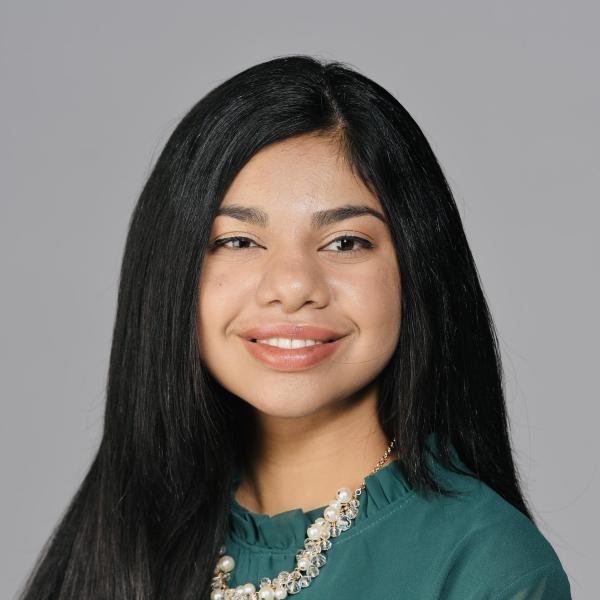
Aliza Siddiqui
Advisor: Joshua Combes Lab: Combes Group
Bio: Siddiqui is a first-year PhD student with a research concentration in Quantum Engineering and Architecture. She graduated from Louisiana State University, home of the Tigers, with a degree in computer science.
My proposal involves creating a new benchmarking/testing framework for the next generation of error-corrected quantum computers. Given the noise of physical qubits, recent work has suggested combining the state of several physical qubits to create a logical qubit. I will collaborate with Dr. Josh Combes and Sandia National Labs for my PhD. Through this work, the quantum community will have a tool-kit that will help us determine how well a quantum computer performs, diagnose what and where the issues are and create solutions to realize full-scale, error-corrected quantum systems.
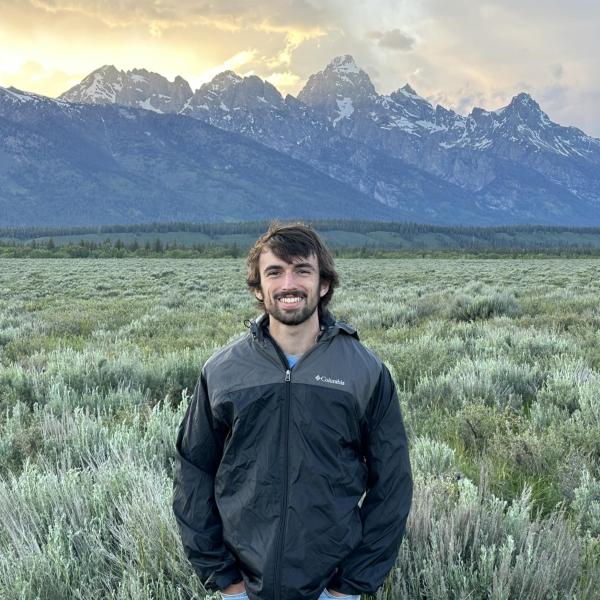
Dylan Meyer
Advisor: Scott Diddams Lab: Frequency Comb & Quantum Metrology Lab
Bio: Meyer is a first-year PhD student in the FCQM group. He received his undergraduate degree from the University of Alabama in Electrical Engineering.
My research proposal is the development of highly stable and robust millimeter wave time and frequency (T&F) transfer, supporting T&F transfer between atomic clocks. T&F transfer is used to create clock networks that are essential for positioning and navigation, such as GPS and essential infrastructure like the Internet and power grid. These technologies support up to $1 billion dollars of trade and financial transactions a day. In addition, these clock networks are capable of fundamental science experiments capable of probing new and exciting questions related to physics and geodesy.
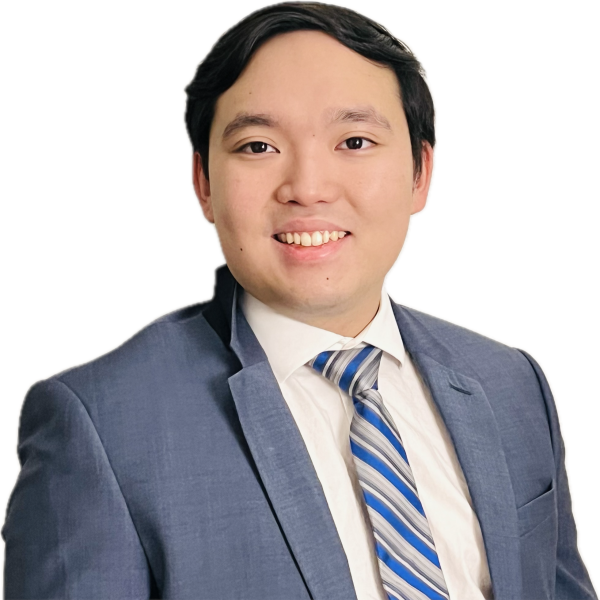
Advisors: Cody Scarborough and Robert MacCurdy Lab Groups: EMRG and MAClab
Bio: Pham received their Bachelor's and Master's degrees in Electrical & Computer Engineering from the University of Oklahoma, where he conducted research on RF filters. After graduating, he worked for 3 years in industry as an RF engineer developing radar systems. He will begin his PhD this fall 2024.
My research proposal is on the application of multi-material additive manufacturing techniques for metamaterial antennas. Metamaterial antennas are capable of more sophisticated capabilities and unique form-factors compared to conventional antennas. By leveraging multi-material additive manufacturing, there are more degrees-of-freedom for the shape and composition of the metamaterials. This research would enhance the design flexibility and capabilities of next-generation antennas to meet the growing performance demands of future wireless systems.
Related Articles

ECEE students earn college undergraduate awards 2024

Innovation unveiled: ECEE students to showcase design projects

Zoya Popovic elected to the National Academy of Inventors
Apply Visit Give
Departments
- Ann and H.J. Smead Aerospace Engineering Sciences
- Chemical & Biological Engineering
- Civil, Environmental & Architectural Engineering
- Computer Science
- Electrical, Computer & Energy Engineering
- Paul M. Rady Mechanical Engineering
- Applied Mathematics
- Biomedical Engineering
- Creative Technology & Design
- Engineering Education
- Engineering Management
- Engineering Physics
- Environmental Engineering
- Integrated Design Engineering
- Materials Science & Engineering
Affiliates & Partners
- ATLAS Institute
- BOLD Center
- Colorado Mesa University
- Colorado Space Grant Consortium
- Discovery Learning
- Engineering Honors
- Engineering Leadership
- Entrepreneurship
- Herbst Program for Engineering, Ethics & Society
- Integrated Teaching and Learning
- Global Engineering
- Mortenson Center for Global Engineering
- National Center for Women & Information Technology
- Western Colorado University
Search form
You are here, zhao ’95 phd named dean of uconn’s college of engineering.
Materials science and engineering alum Ji-Cheng ‘JC’ Zhao ’95 PhD has been named dean of UConn's College of Engineering, effective August 12, 2024, according to a news release .
Zhao is currently the department chair of Materials Science and Engineering (MSE) and Clark Distinguished Chair Professor of the University of Maryland, College Park.
According to the release: "Zhao joined the University of Maryland in 2019. There, he gained experience in managing complex budgets, leading cross-functional teams, building industry partnerships, and engaging in development work. In addition, Zhao’s research has focused on the design of advanced alloys and coatings, additive manufacturing (3D printing) of alloys and composites, materials science methodologies, computational thermodynamics and kinetics, and hydrogen/energy storage materials."
In 2023, Zhao was elected to the National Academy of Engineering and named a Fellow of the American Association for the Advancement of Science (AAAS).
Prior to joining the UMD faculty, Zhao was a professor at Ohio State University and also served as a program director at the Advanced Research Projects Agency-Energy (ARPA-E) of the U.S. Department of Energy. Earlier in his career, he spent more than a decade as a materials scientist at GE Research Center in New York.
He holds a BS and MS in materials science and engineering (physical metallurgy) from Central South University, in addition to his Lehigh PhD.
Read the full story on the UConn Today website.
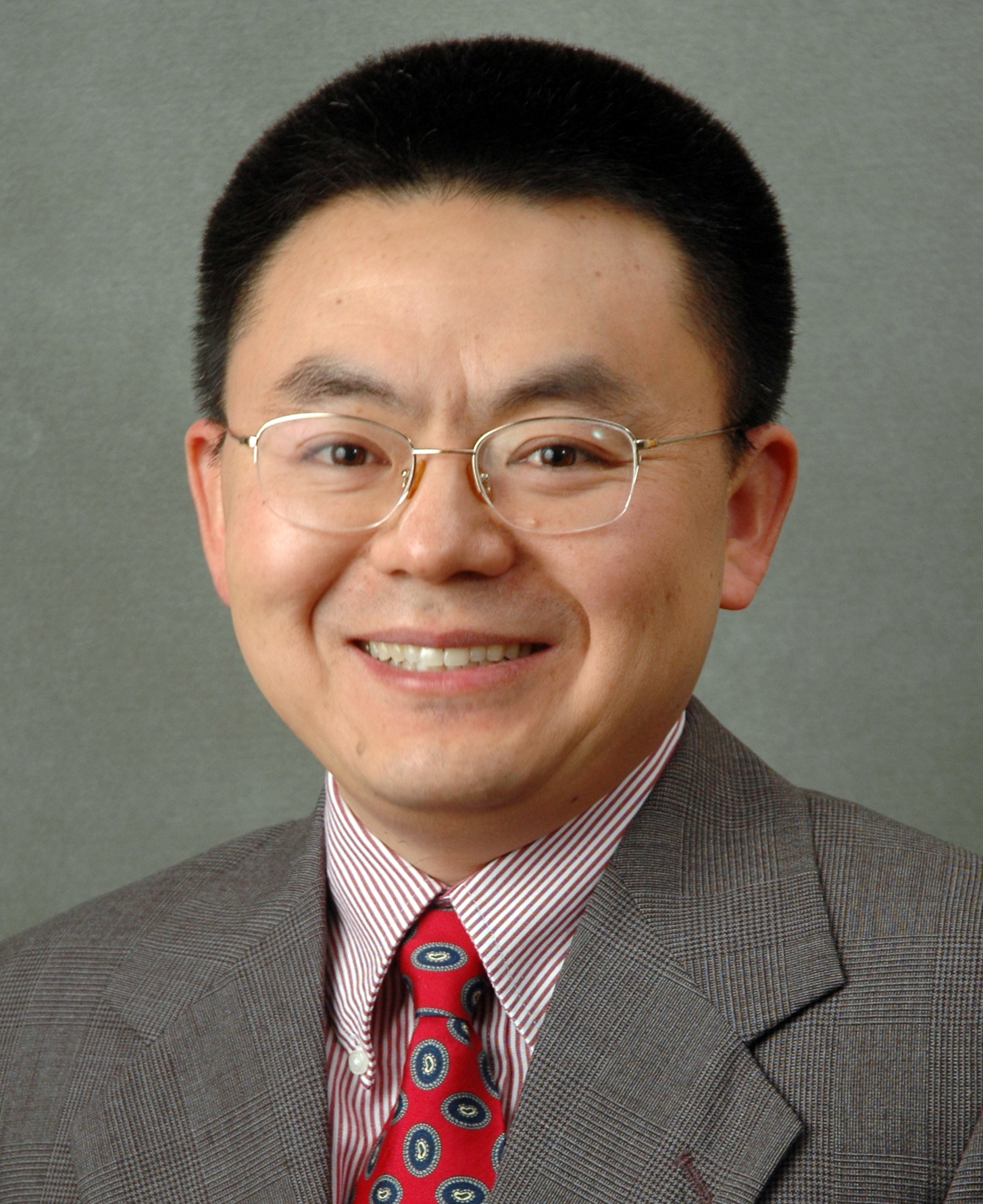
Materials science and engineering alum Ji-Cheng “JC” Zhao ’95 PhD is the incoming dean of UConn's College of Engineering. (Photo: University of Maryland )
Related News
Rossin college alums to speak at lehigh’s 2024 commencement ceremonies, bioe 2024 industry & alumni mixer, willoughby ’89 elected to national academy of engineering, seebergh '89 elected to national academy of engineering.
- Washington State University
- Go to wsu twitter
- Go to wsu facebook
- Go to wsu linkedin
Second chances: Graduate student receives NSF research fellowship

Sonja Sargent Sparks started life over again in her thirties, and her renewal has led to success as the recipient of a National Science Foundation Graduate Research Fellowship.
The highly competitive fellowship award, one of 2,000 given nationwide, will provide three years of financial support for Sargent Sparks, a PhD student in the School of Mechanical and Materials Engineering.
Sargent Sparks was living in Tacoma when she decided to enroll in Bates Technical College to learn about 3D printing and CAD modeling. Although she had little math background, she soon became interested in engineering and decided to pursue a mechanical engineering degree, eventually transferring to and then graduating from WSU.
“I chose WSU Pullman because I heard that it was a positive and collaborative atmosphere, and that has since proven to be true,” she said. “Additionally, I had heard about research opportunities in Pullman and wanted to try out research. It turns out — I really enjoy research, so I decided to stay and pursue my PhD in mechanical engineering under my advisor, Dr. Kaiyan Qiu.”
Qiu, Berry Assistant Professor in the School of Mechanical and Materials Engineering, is working to design, fabricate, test, and optimize a flexible 3D-printed biomimetic sharkskin. The researchers hope that the materials they develop will reduce drag in the water with possible applications in underwater vehicles, robots, and swimsuits.
Studied since the 1980s, shark skins are covered with thousands of small, tooth-like structures called denticles that reduce drag, save energy, and allow sharks to swim quickly and efficiently. Because of their tightly packed arrangement, the denticles also serve to fight off microbial infections.
In trying to develop an artificial sharkskin with similar properties, the researchers are working to understand the optimal arrangement, size, spacing, thickness, and height for the imitation denticles. The researchers are using both experimental and simulation methods to try to optimize a biomimetic sharkskin.
“Our final goal is to optimize the biomimetic surface and reduce the drag for different underwater applications,” said Qiu.
As she is continuing her studies as a graduate student and now as the recipient of a prestigious fellowship, Sargent Sparks is grateful for second chances.
“I am profoundly honored to receive this prestigious award. It symbolizes not just a personal achievement, but a testament to the path that brought me here,” she said. “Without the investment and encouragement of those who believed in me every step of the way, I wouldn’t stand where I am today. I am deeply grateful for this and excited to continue with this journey.”
In addition to Sargent Sparks, WSU alumnus Gunnar Sly also received one of the NSF fellowships for his studies at Penn State University.

Regents start search process for next WSU president
Recent news.

Extension tackles climate awareness

Regents approve new degree programs, discuss faculty listening sessions

WSU President Kirk Schulz to retire in June 2025

New clinic improves access to timely care for children with autism spectrum disorder

Mellon Foundation awards $1.5 million grant to WSU’s Mukurtu platform
Mary garcia receives excellence in online teaching award.
Computer Science and Engineering
Search form.
- Future Students
- Current Students
- Accreditation
- Financial Assistance
- GradTrack Program
- Capstone Program
- Marketable Skills
- Study Abroad
- Internships
- UNT at Frisco
- Grad Orientation
- Financial Assistantship
- Pathways Program
- CSE Seminars
- Graduate Course Scheduling
- Retired Faculty
- TAs/Graders
- Peer Mentor /UG Grader
- Stay Connected
- PhD Graduates
- Update Your Info
- Order Transcript
- About the Department
- Our History
- Advisory Council
- Faculty History
- Student Organizations
- Give to CSE
- Centralized Environment for Linux Labs (CELL Machines)
- Faculty Resources
PhD candidates and faculty selected as finalists for the 2024 Siemens Tech Sustainabilitiy through Cybersecurity Challenge

Last month, research from our Network Security Lab received the winning team award for the 2024 Siemen’s Tech Sustainability through Cybersecurity Challenge . PhD candidates, Amal Alshehri and Burak Tufekci, as well as Assistant Professor, Dr. Cihan Tunc , were one of the finalist research groups (out of 22 projects) and their project “OTZET: Operational Technology Zero Trust Engine for Trustworthiness” has been selected as the winning project during Siemens’ international competition on March 11-14, 2024.
The group’s project underwent 4 stages of review consisting of a 4-month timeframe. The first stage, Ideation, occurred during the month of December 2023, saw a large pool of research ideas submitted by universities and companies around the world. Then, the selected projects ideas were implemented under Siemens’ guidance. And the final review was made in March 2024 for the selected finalists (2 projects), which allowed our team to present and win the competition under the sustainability through cybersecurity track during the final Hackathon & Live Pitches stage last month. The audience consisted of respected professionals in cybersecurity, as well as those in academia, with potential of future collaboration or sponsorship.
Here’s what Siemens outlines as their goals for their Cybersecurity challenge in Sustainability: At Siemens, we consider cybersecurity as one of the company’s sustainability goals. We live in an ever-evolving environment filled with digital threats and risks. Only through robust cybersecurity can we effectively address those risks. This includes safeguarding information and intellectual property by preventing digital attacks from materializing in the real world, or by supporting businesses and production sites to operate without disruptions.
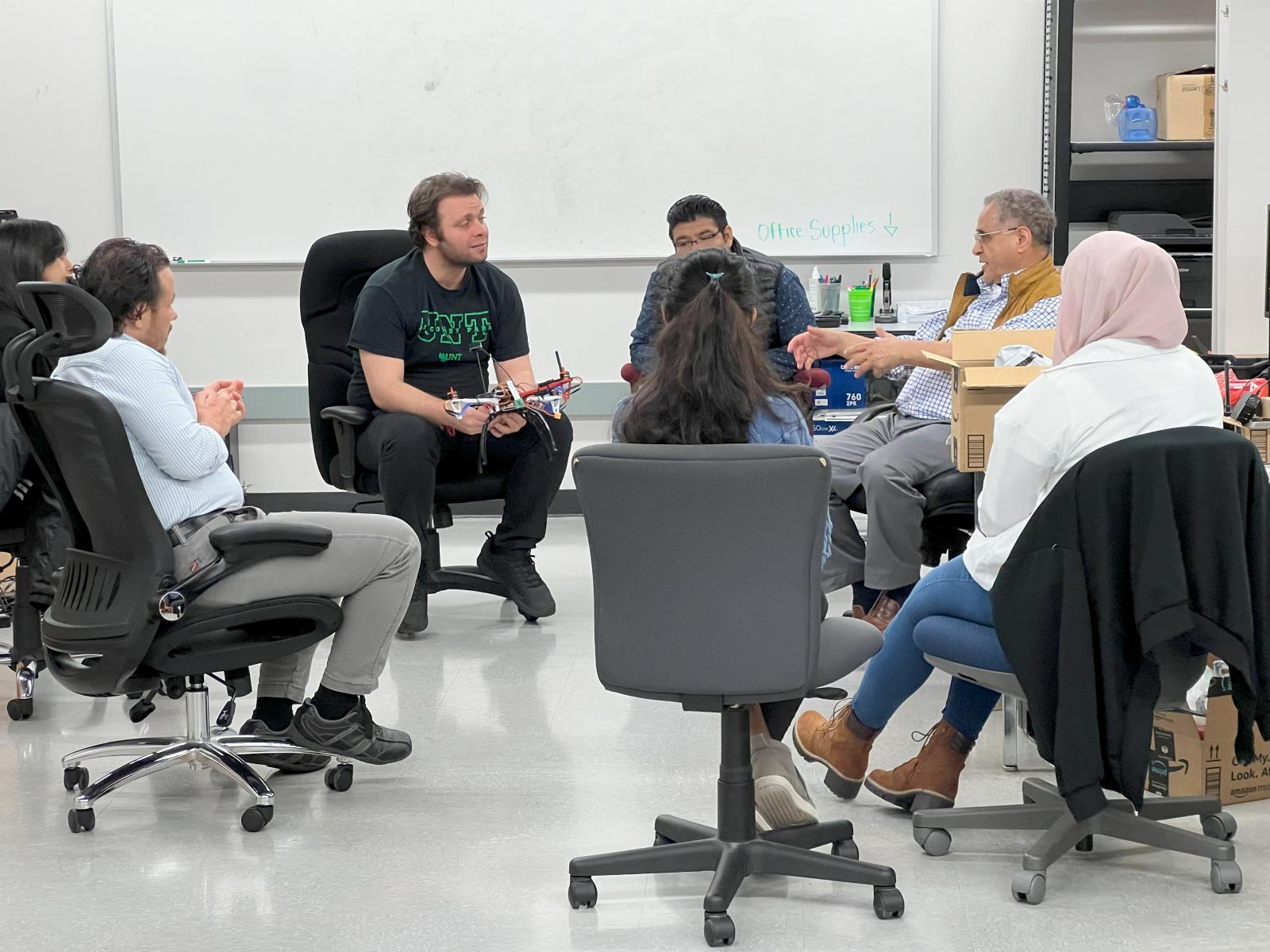
The OTZET project continues on as the Network Security Lab crew are moving forward with more paper submissions and more advances in their work. Dr. Cihan Tunc states, “We’re looking to build this research for further progression. [Amal Alshehri] is doing this for her final research.”
The Department of Computer Science and Engineering extends a huge congratulations to Amal Alshehri, Burak Tufekci, and Dr. Cihan Tunc on a job well done!
For more information on the Network Security Lab and the Smart CyberSpace group, check out their website links here:
Home | Network Security Lab (NSL) (unt.edu )
Welcome to Smart CyberSpace (SCS) at UNT | Smart Cyber Space (SCS)
For more information on Siemens, click here to access their website: Sustainability through cybersecurity | Siemens Innovation Ecosystem
College of Engineering
Knutson receives excellence in safety award.

The University of Iowa's Laboratory Safety Committee has recognized Chris Knutson, lab director at IIHR—Hydroscience and Engineering, with the Excellence in Safety Award – Individual Recognition. Knutson manages laboratories for graduate research.
"Your dedication to safety not only protects individuals but also contributes to the overall success of our research endeavors," the award notice states. "Your award is a testament to your commitment and leadership."
Knutson was nominated by a colleague, Rachelle Justice, for his "dedication, proactive approach, and commitment to maintaining a safe laboratory environment."
- Proactivity and Preparedness: Your proactive mindset and continual communication with EHS throughout the year ensures that questions or potential safety hazards are addressed promptly. Your thorough preparation for extensive walkthroughs of the laboratory space demonstrates your commitment to safety.
- Balancing Precision and Communication: During your walkthroughs of the laboratory space, you strike an impressive balance. Some issues are immediately resolved while with others you will take the time to explain the necessary changes to researchers. Your ability to articulate the "why" behind these changes fosters understanding and encourages active participation in compliance improvements.
- Effective Oversight: Managing a significant number of people, locations, and ongoing research is no small feat. Your leadership ensures that safety protocols are consistently followed, leading to better compliance for all.
College of Engineering
April 22, 2024
900+ Spartan Engineering students to graduate
Alumna rachel hutter, head of disney studios operations, to give spring commencement address.
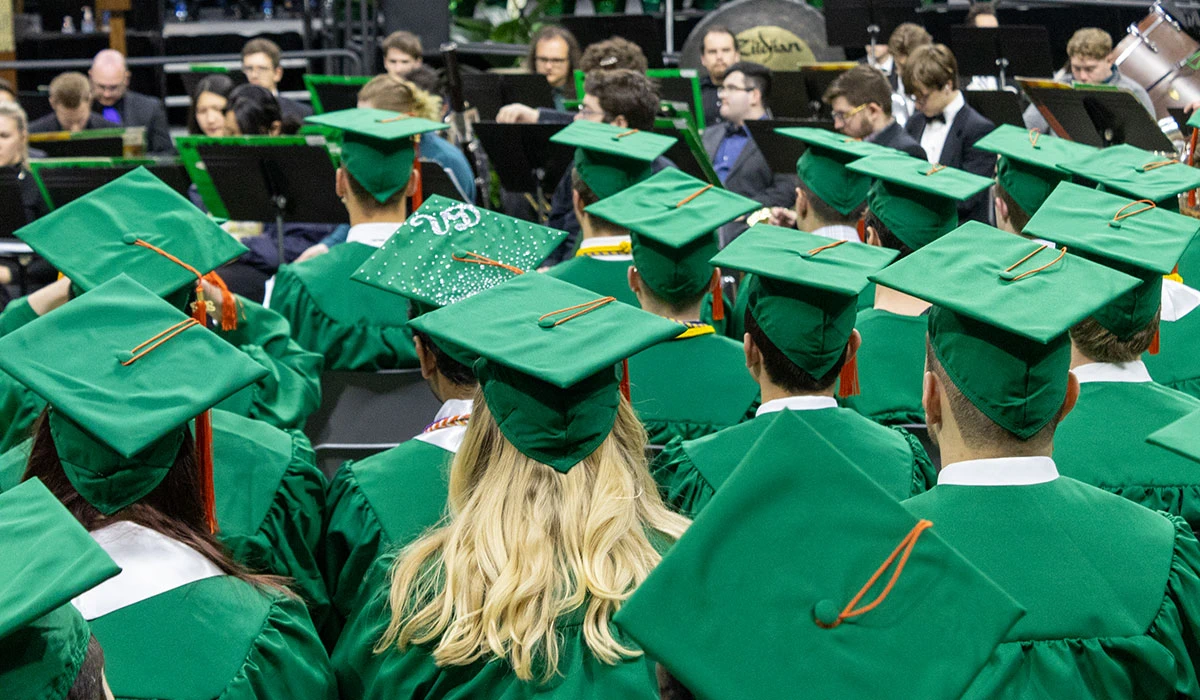
Michigan State University will host advanced degree and undergraduate commencement ceremonies for more than 900 College of Engineering graduates this weekend.
Both ceremonies are expected to be approximately two hours. There are no admission tickets required.
College of Engineering Dean Leo Kempel said he’s confident all graduates will be able to tackle the challenges that lie ahead.
“I cannot wait to see the incredible accomplishments our graduates will achieve in the years to come,” Kempel said. “My advice is to embrace every career opportunity, continue to learn and grow, and never lose sight of the impact you can make as Spartan Engineers."
Kempel will offer both the welcome and closing remarks at undergraduate graduation. Amanda Idema, assistant dean for Undergraduate Student Affairs, serves as commencement coordinator.
Ceremony dates, times
Engineering will host graduation services for 805 undergraduates on Sunday, April 28, at 3:30 p.m. in the Breslin Center.

Ashlin Riggs, a computation data science senior, has been named the student commencement speaker.
Charles Dunn, a senior in chemical engineering, will sing the Star-Spangled Banner.
Adwait Paliwal, a computer science senior, will deliver the remarks at convocation.
The Advanced Degree Commencement for master’s degree graduates is Friday, April 26, at 9 a.m. in MSU's Breslin Center. There will be 56 master's candidates from the College of Engineering.
The Advanced Degree Commencement for Ph.D. graduates is Friday, April 26, at 3 p.m. in MSU's Breslin Center. There will 78 Ph.D. candidates from the college.
Safety protocols, parking, concessions
For the safety of attendees, no bags or purses will be allowed in Breslin Center during commencement ceremonies. Cameras and camcorders are permitted, but cases are prohibited.
No food or beverages — including bottled water — will be allowed, and this applies to graduates, guests, and faculty. Breslin Center will offer a limited concessions menu during the ceremonies.
Related links:
- MSU Commencement website
- More than 9,500 Spartans to graduate this spring
- Dantonio, influential leaders to address spring graduates
Additional prohibited items: noisemakers, selfie sticks, pets, signs and weapons of any kind. MSU is a smoke-free campus, including all outdoor and indoor spaces.
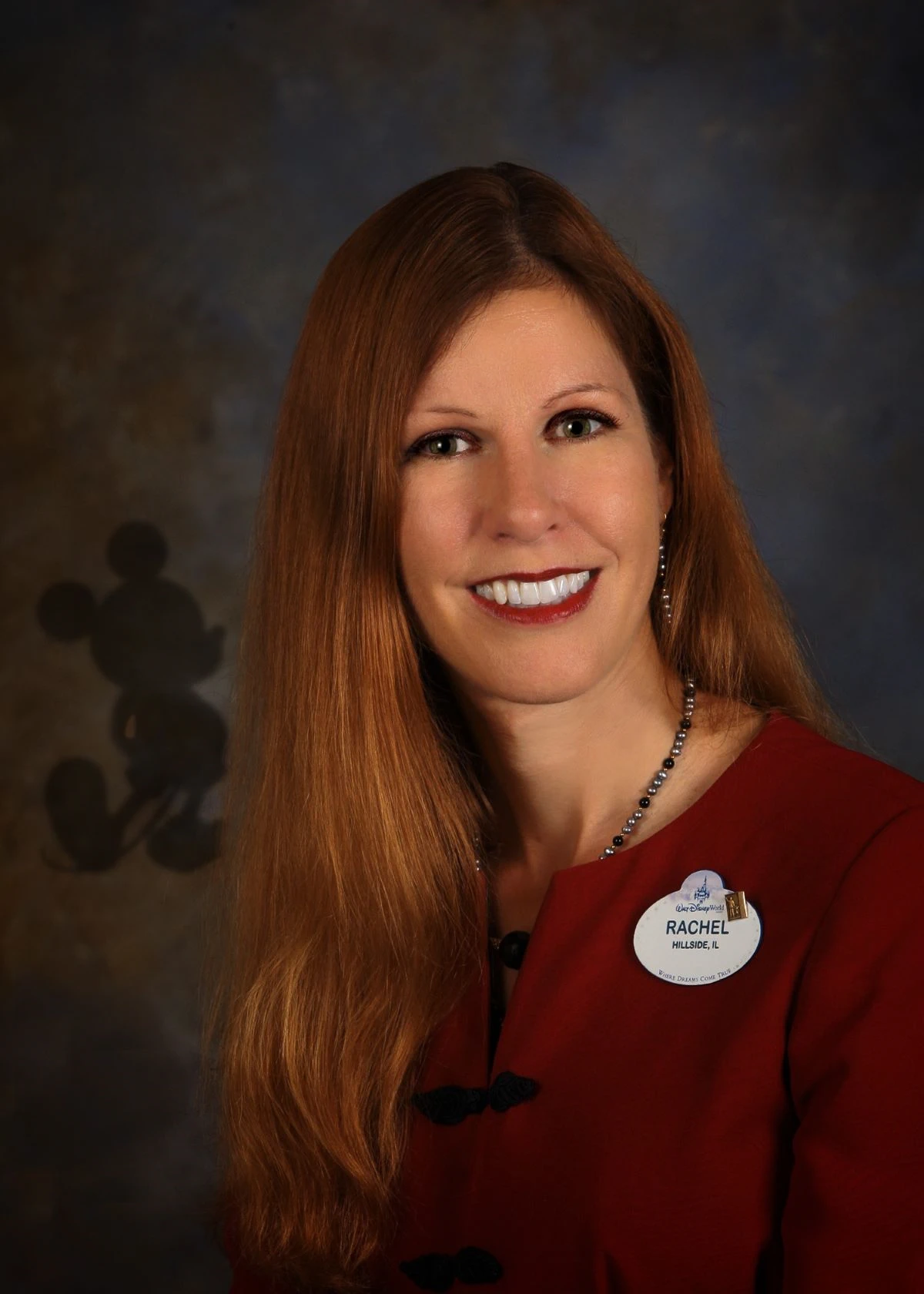
Metal detectors will screen all attendees at Breslin Center, so please plan accordingly.
Parking at the Breslin Center is limited, so the public is encouraged to use the free shuttle service.
Distinguished Alumni keynote address
Rachel S. Hutter will offer the undergraduate keynote address as the 2024 Claud R. Erickson Distinguished Alumni Award Recipient. Hutter will receive the College of Engineering’s top honor at the Engineering Alumni Awards banquet on Saturday, April 27.
Hutter is head of studio operations for Walt Disney Studios and is a licensed professional engineer and certified safety professional.
Hutter joined Disney in 1997 and was part of the team that built and opened Disney’s Animal Kingdom.
As head of Disney studio operations, Hutter’s responsibilities include planning and tracking content for Marvel, Lucasfilm, Disney Live-Action, Disney Animation, Pixar, 20th Century Studios and Searchlight Pictures.
Hutter graduated from Michigan State University in 1993 with a bachelor’s degree in electrical engineering and had a concentration in theater.
Programs available online, via mail
There are no printed commencement programs on-site at any ceremony location. However, attendees will be able to access the programs by scanning QR codes with their mobile device.
To order a program and have it mailed to you, visit the MSU commencement website. Programs will be mailed after the ceremonies.
Written by Eric Lacy, [email protected]. See more at the Engineering Media and Public Relations page.

IMAGES
VIDEO
COMMENTS
At Johns Hopkins University, both the Doctor of Engineering and the Doctor of Philosophy involve mentored research and in-depth investigation. There are a few key differences, though (although these are not hard and fast rules). DEng. PhD. Guiding Philosophy. Engineering practice and application. Engineering theory and scholarship.
The Doctor of Engineering (D.Eng or EngD) is a research doctorate in engineering and applied science.An EngD is a terminal degree similar to a PhD in engineering but applicable more in industry rather than in academia. The degree is usually aimed toward working professionals. The DEng/EngD along with the PhD represents the highest academic qualification in engineering, and the successful ...
A Ph.D. in engineering is a research degree that provides candidates with highly specialized knowledge of a specific engineering subfield. Candidates learn about quantitative research methods and complete advanced coursework. They also conduct independent research to prepare a written dissertation and an oral presentation.
Electrical Engineering. $23,070. 2020 - 2021. MIT. Electrical Engineering. $43,150. 2019 - 2020. As you can tell, diving into a PhD in engineering might not make you rich overnight. But, hey, it does give you the chance to work on some mind-blowing research and help shape the world of tomorrow.
Specialization. Earning a master's degree in engineering typically allows you to get involved in many different types of engineering projects and roles after graduation. Conversely, Ph.D. programs are often much more specialized. The work you do while in a Ph.D. program usually prepares you for a specific role or niche within engineering.
Engineering Ph.D.s provide even more specialization than master's degrees, and a higher earning potential, but they also come with significant risks, experts say. Research jobs within government ...
Graduates of PhD in Engineering programs can work as professors at research universities, dedicate their expertise to industrial or government research labs, or create a business around their own innovation. Consider building your career as the developer of a green energy trend, discovering a life-saving biomedical process, or taking the world ...
Equally importantly, a PhD will give you a level of job security that a lesser degree won't give you. "I have yet to find a jobless, homeless PhD in engineering. That's my simple answer," grins Thole. Not only that, but it opens up new opportunities. "The PhD really allows you to tailor your own career a bit more.
An engineering doctorate is an even more specialized degree, reserved for those interested in advanced research, academia, or the highest leadership roles in an engineering firm. With a doctorate in engineering, you can: teach as a professor at a university; ... Graduate Record Exam (GRE) scores; minimum GPA of 3.0, is common, but big-name ...
51-75. The Ohio State University - Columbus. 9. 101-150. University of Maryland, College Park. 10. 50. This information is based on the number of papers published by an institution in an academic subject in journals, this is from the latest Mechanical Engineering rankings tables, researched and published by Academic Ranking of World Universities.
Earn Your Doctorate at Duke. Completing a PhD program in engineering is hard. Really hard. But after years of preparation, frustration and celebration, a Duke doctorate stands out from the crowd. Between field-defining faculty and a web of industrial, entrepreneurial and public-policy connections, with a Duke Engineering PhD, you can just about ...
In the initial 2 years of a conventional JHU PhD, students predominantly engage in advanced coursework. As such, admission to a WSE PHD program does not require a master's degree. In contrast, applicants to the D.Eng. program must have completed a master's degree in an engineering or technical discipline prior to matriculation in the program.
6 types of engineering degrees. While engineering is a broad field, it can be loosely divided into six subcategories. While not every school offers a degree in these types of engineering, they tend to be common. 1. Electrical engineering degree. If you enjoy math and physics, you may want to consider an electrical engineering degree.
The Doctor of Engineering in Engineering Management is designed for practitioners who wish to apply the knowledge they gain in a technical management environment. Unlike a Doctor of Philosophy (Ph.D.), wherein research is focused on foundational work that is published, the D.Eng. requires solving a real-world problem using the latest ...
For context, PhD candidates' salaries are typically in the high $20K to low $30K range per year, depending on if you're in science (lower) or engineering (higher) and the cost of living where your school is located. Now, if you're still thinking about it, here are a few reasons pursuing a PhD might be a great fit for you:
The PhD in Engineering provides maximum flexibility for students to address 21st century challenges through their studies and research. Emphasis Areas enable students to focus in either a specific disciplinary specialty or interdisciplinary area. ... The Ph.D. in Engineering encourages exploration and definition of new engineering approaches ...
These programs marry technical curriculum with a background in professional skills like management, finance and communication. READ MORE. # 1. Massachusetts Institute of Technology. Cambridge, MA ...
The PhD and Certificate Program in Medical Physics welcomes applicants who are currently in the process of applying to Dartmouth Engineering's PhD program, as well as applicants who are currently enrolled in Dartmouth Engineering's PhD program, or any of the physical science PhD programs at Dartmouth. The application process differs slightly ...
The PhD in Systems Engineering provides a springboard for careers as an academician, as a researcher, as a consultant or in management/leadership within a university, institute, industry or government setting. SIE doctoral programs include three components: See below for information on the Systems Engineering PhD program, or download the SIE ...
PhD in Engineering. Credits: 96 credit hours beyond a bachelor's degree or 64 credit hours beyond a master's degree. Cost: $717.89/credit (in state, includes fees), $1,247.40/credit (out of state, includes fees) plus a $555.56 distance education differential tuition fee per credit hour. Length: Three to seven years.
A PhD is a terminal academic degree students typically pursue when they're interested in an academic or research career. A PhD is the highest possible academic degree a student can obtain. PhD stands for "Doctor of Philosophy," which refers to the immense knowledge a student gains when earning the degree. While you can actually get a PhD in ...
The Doctor of Engineering in Engineering Management is designed for practitioners who wish to apply the knowledge they gain in a technical management environment. Unlike a Doctor of Philosophy (Ph.D.), wherein research is focused on foundational work that is published, the D.Eng. requires solving a real-world problem using the latest ...
PhD starting salary = roughly $90k-120k. BS salary after 7 years = roughly $80k-100k (mine was $125k with a BS and 7yrs experience) The point I'm making is that a PhD is no guarantee of a higher salary than what could be attained with a BS and equivalent years of experience. In my case my career grew rapidly.
Dylan Meyer. Advisor: Scott Diddams Lab: Frequency Comb & Quantum Metrology Lab Bio: Meyer is a first-year PhD student in the FCQM group.He received his undergraduate degree from the University of Alabama in Electrical Engineering. My research proposal is the development of highly stable and robust millimeter wave time and frequency (T&F) transfer, supporting T&F transfer between atomic clocks.
Materials science and engineering alum Ji-Cheng 'JC' Zhao '95 PhD has been named dean of UConn's College of Engineering, effective August 12, 2024, according to a news release. Zhao is currently the department chair of Materials Science and Engineering (MSE) and Clark Distinguished Chair Professor of the University of Maryland, College Park. According to the release: "Zhao joined the ...
It turns out — I really enjoy research, so I decided to stay and pursue my PhD in mechanical engineering under my advisor, Dr. Kaiyan Qiu." Qiu, Berry Assistant Professor in the School of Mechanical and Materials Engineering, is working to design, fabricate, test, and optimize a flexible 3D-printed biomimetic sharkskin.
Last month, research from our Network Security Lab received finalist honors for the 2024 Siemen's Tech Sustainability through Cybersecurity Challenge.PhD candidates, Amal Alshehri and Burak Tufekci, as well as Assistant Professor, Dr. Cihan Tunc, were one of two research groups selected to present their research paper entitled, "OTZET: Operational Technology Zero Trust Engine for ...
Alumni Shubhayu Bhattacharyay and Min Jae Kim along with graduate student Michael E. Xie have been awarded the Paul and Daisy Soros Fellowships for New Americans.One of the most competitive scholarships in the United States, the Soros Fellowship honors the contributions of immigrants and children of immigrants to the United States.
Friday, April 19, 2024. The University of Iowa's Laboratory Safety Committee has recognized Chris Knutson, lab director at IIHR—Hydroscience and Engineering, with the Excellence in Safety Award - Individual Recognition. Knutson manages laboratories for graduate research. "Your dedication to safety not only protects individuals but also ...
Alumna Rachel Hutter, head of Disney Studios operations, to give Engineering keynote address. More than 900 engineering students will graduate Sunday, April 28 at Breslin Center. Michigan State University will host advanced degree and undergraduate commencement ceremonies for more than 900 College of Engineering graduates this weekend.